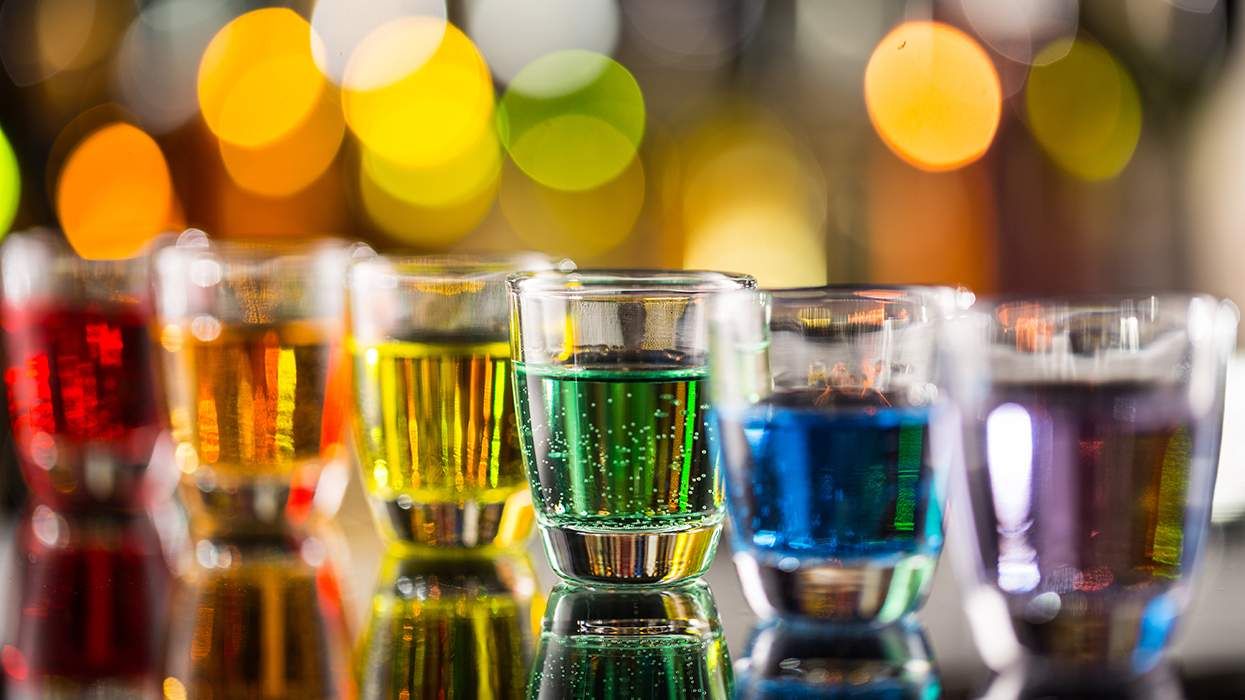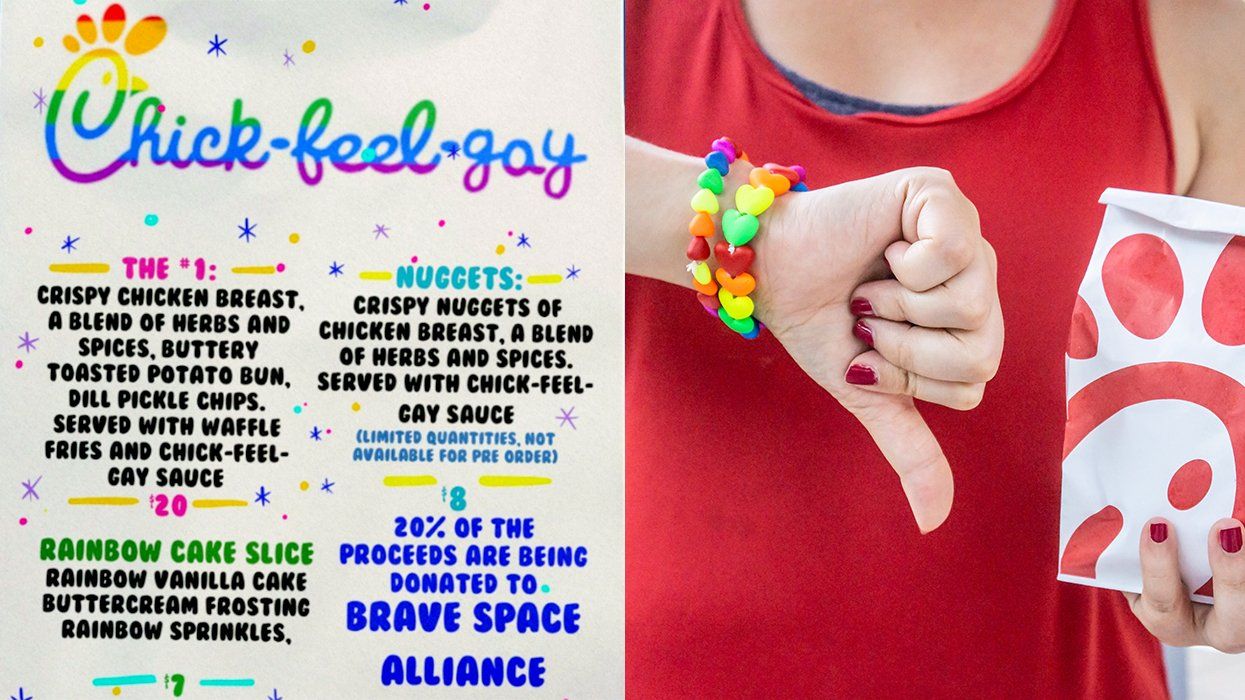1851 Club, Arlington, Texas
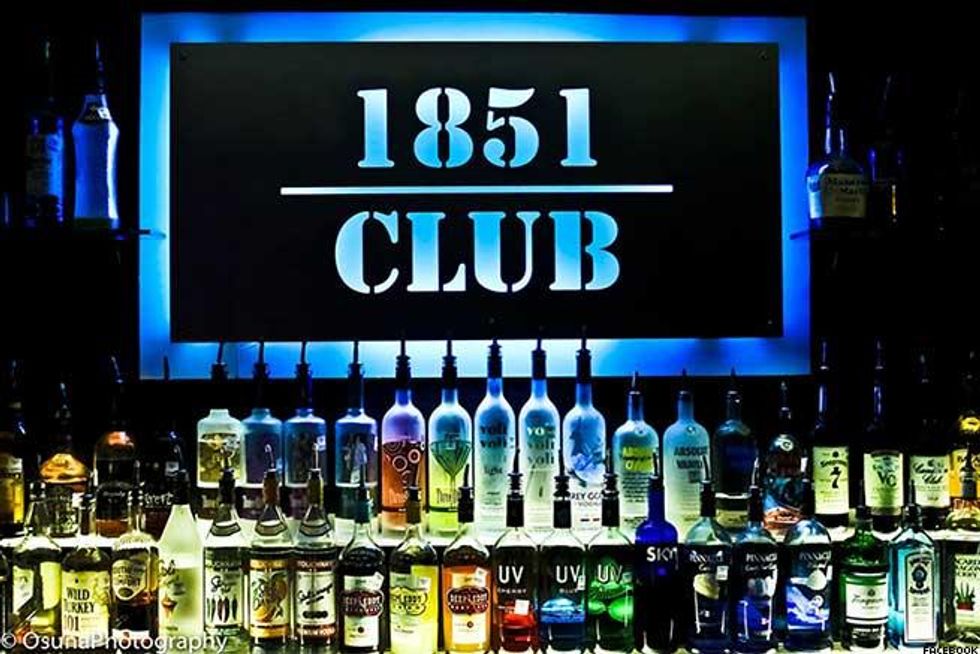
The only gay bar in Arlington, Tex., has shuttered due to the pandemic.
The 1851 Club, which for decades operated as a Cheers-style watering hole for the local LGBTQ+ community, announced the sad news to its patrons in a January 2021 Facebook post. The bar was known for its drag shows, Pride parties, and a days-long annual New Year's celebration.
"For so many years the 1851 club has been our home away from home," the post read. "A place where we can all feel accepted, be ourselves and feel safe. True 'Families' were made here. Secrets were kept, loves were lost, true LIVES were found.
"We have exhausted any and every route to try to save our home. It just can't be done anymore. There comes a time when we just have to face the truth and close the door."
The establishment posted that it was not eligible for the aid offered to small business during the recession. Due to pandemic restrictions, the 1851 Club had been forced to operate at 50 percent capacity and required masks of patrons. Quoting Judy Garland in The Wizard of Oz, it declared that perhaps a reasoning for its unjust closure would be found "Some where over the Rainbow."
Oil Can Harry's, Los Angeles
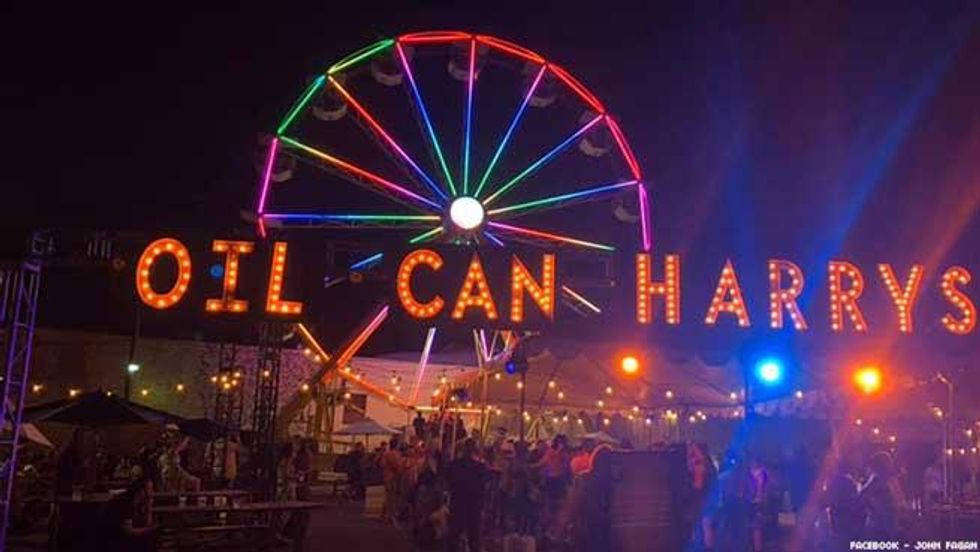
Oil Can Harry's has had its last dance.
The gay country-western bar, which has provided line-dancing and a watering hole for the LGBTQ+ community in Los Angeles's Studio City neighborhood for 52 years, was sold in December to a new owner who plans to convert it into a venue with jazz music, according to owner John Fagan.
In a Monday Facebook post, Fagan revealed that the landlord of the building, Monty Overstreet, had made the sale. Overstreet also owned the buildings housing West Hollywood's Gold Coast Bar, Rage Nightclub, and Flaming Saddles, which all shuttered last year due to failed rent negotiations.
Previously, a November Facebook post on the bar's page had announced plans of a sale but remained hopeful for a reopening. Oil Can Harry's "is closed at this time ... strictly due to COVID-19 and will reopen when allowed," the post read. Sadly, that has not come to pass.
"I fought hard to keep it but just had to give up!" wrote Fagan, who had taken over the reins of Oil Can Harry's after the 2013 death of his partner, Bob Tomasino. "Not sure down the road where it will lead."
"Thank you all for this beautiful gift that we all shared for 52 years," he added. "Please no negative post! It only hurts. Only positive, it helps!! Any help would be wonderful."
Oil Can Harry's was known for its large wooden dance floor, where LGBTQ+ patrons would line-dance and even receive free classes during the early hours of the evening. (No cocktails were allowed on the floor.) The upstairs lounge hosted karaoke.
Over the years, its famous dancing patrons included RuPaul, k.d. lang, and Geena Davis. LeAnn Rimes and Ty Herndon were among the performers on its stage, reports WeHo Times. The bar was also the setting of the Haim music video, "Little of Your Love."
The venue began as a burlesque club called the Zomba Room in the mid-20th century. Dancing among same-sex partners was illegal at the time. So if the police arrived, a monitor at a spy hole would sound an alarm and the dancing couples would switch partners to avoid a raid, according to manager and bartender Tommy Young.
Messages of love and memories, from patrons old and young, filled the responses to Fagan's post. "Thank you for creating a place that felt like home in a big, new city," wrote Robin Wivell. "I knew I would always leave happy after a night at Oil Can Harry's. I even brought my parents once I loved it so much! Wishing you all the best and fingers crossed you find a way to continue. Thank you for the memories!
Atlanta Eagle
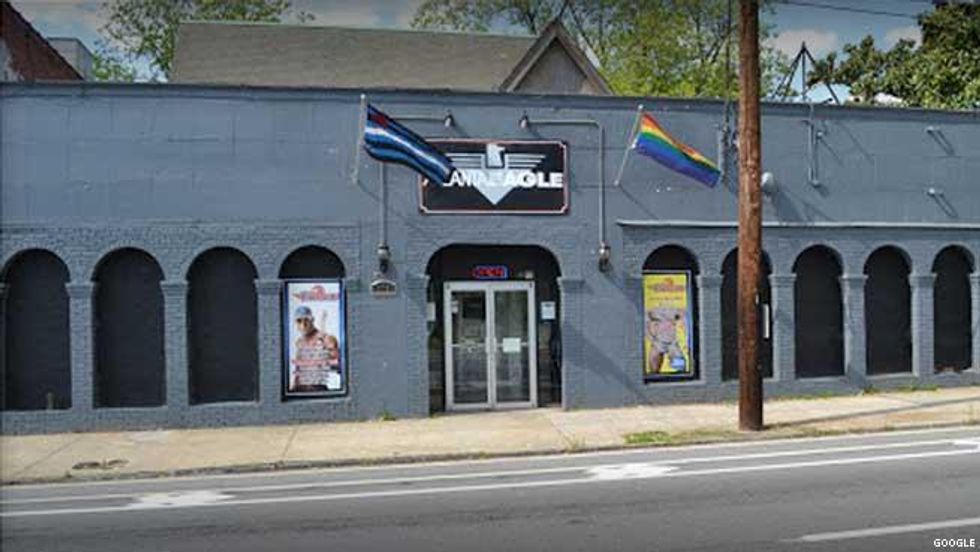
The Atlanta Eagle has ended its more-than-30-year flight in midtown Atlanta.
Owner Richard Ramey announced that the gay bar would be vacating its longterm location at Ponce De Leon Avenue in November 2020. However, Ramey hopes to relaunch the beloved establishment in a new location "when the pandemic is over" -- which Ramey hopes will be June 2021, just in time for Pride. The bar had seen a reduction in business due to the pandemic as its dancefloor could not reopen.
"We are not going out of business," Ramey said in a video posted to social media in October. "We are not closing permanently. We are going to come back bigger, better, stronger than ever. It's been a very emotional year. I am just beyond words what this year has done to so many of us."
Before the midtown location closes up shop, Ramey will host a few small parties where several lucky patrons may get to bring home a brick from the historic location.
CC Slaughters, Portland
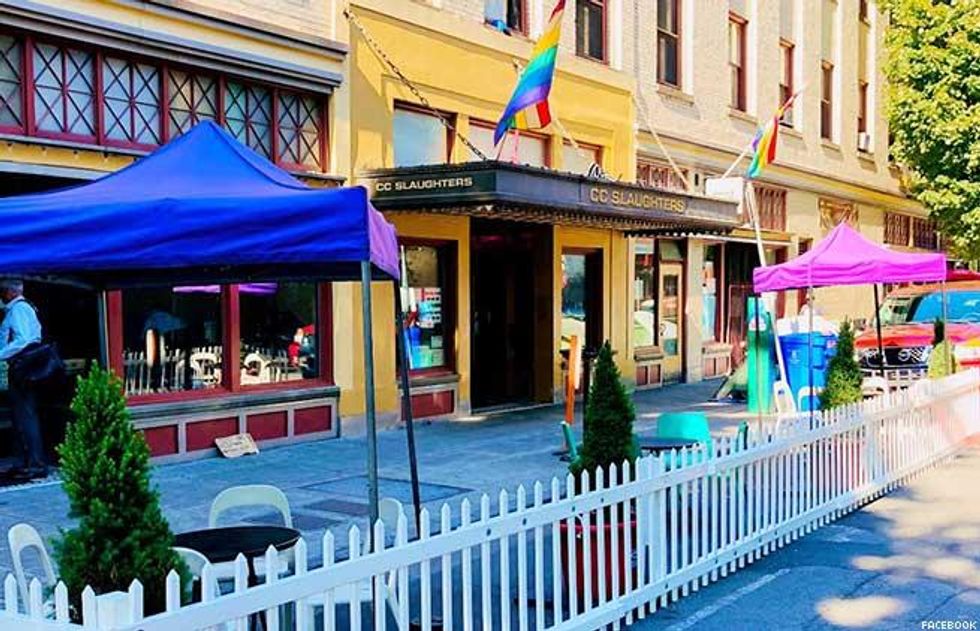
CC Slaughters is closing its doors in October 2020, the Portland LGBTQ+ club announced in a Facebook post.
"To our friends, our family and our guests from near and far, it saddens us to inform the public that as of Sunday October 11th, 2020, CC Slaughters Portland will be closing. We'd like to take the opportunity to thank you ALL for 39 amazing years of drinks, dancing, drama, and fun!" the establishment wrote in a statement.
"Unfortunately 2020 has been very hard on small businesses everywhere and we are no exception to the hard times we all are experiencing. We hope we can open our doors again to you (our family) sometime in the future, but until then, please be safe, practice social distancing, and take care.
CC Slaughters operated in the Old Town neighborhood of the Oregon city for nearly four decades. The news was met with much sadness from the Portland LGBTQ+ community, who saw it as a "safe space."
"Thank you all for spending a great number of years and effort to create a safe space. CCs was always and will always be my second home," stated Rian Dustan in response to the Facebook news. "Thank you B&J for allowing me to be part of your family even though I was never an employee. Thank you for the opportunity and place to build the lifetime friendships I now have because of your work."
Gold Coast, West Hollywood
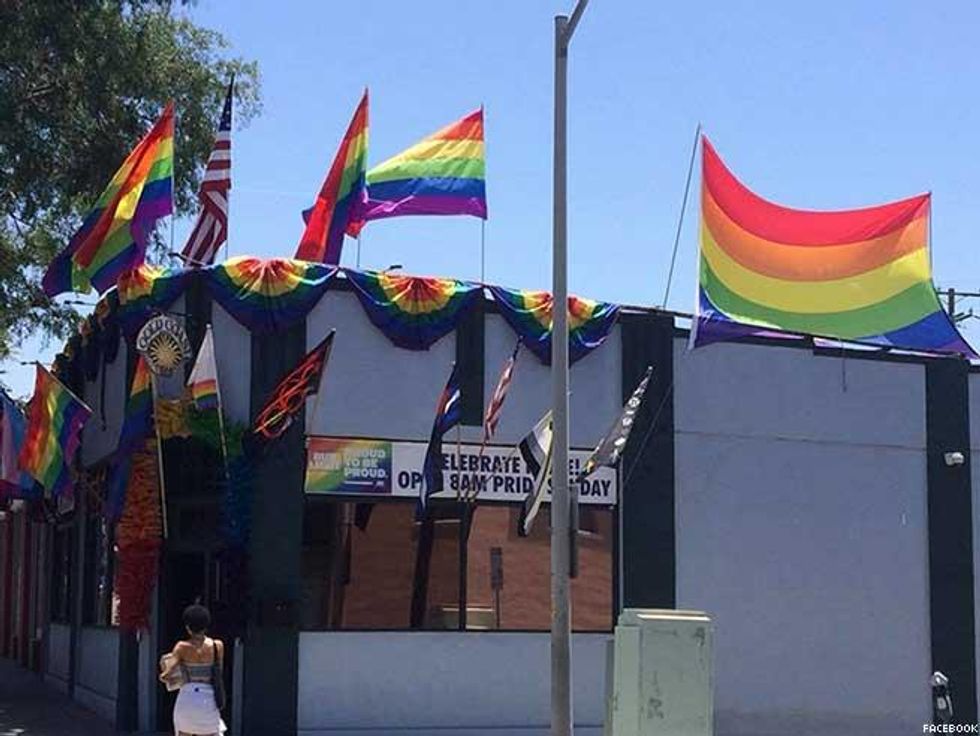
After almost 40 years of operation, Gold Coast closed its doors, co-owner Bryan Worl announced on Facebook in September 2020, reported Wehoville. Although no reason was given in the post, the popular dive bar was the fourth gay bar after Rage, Flaming Saddles, and Gym Bar to shutter in West Hollywood during the COVID-19 pandemic, which has forced all Los Angeles bars that cannot convert to restaurants with outdoor dining to cease operations.
Gold Coast was also the third closed WeHo gay bar to have had Monte Overstreet as a landlord. Overstreet had reportedly not been flexible with the other proprietors during negotiations as they struggled to stay afloat during the pandemic. In his Facebook post, Worl said of the closing, "We do not have a choice. ... We have fought and tried everything in our power to keep this bar and dealing with pressure from very very selfish and heartless people."
Founded in 1981 by Bob Hastings, Gold Coast was known for cheap drinks, an older clientele, and its annual Red Dress Party, a charitable event held in memory of a bartender, Mark Ferguson, who died during the AIDS crisis. Several employees have worked at Gold Coast for a long period of time; DJ Jeff Spain had been employed for over 30 years.
"This is heart breaking for all and especially the employees of the GC who I wouldn't trade for the world," Worl stated. "They were so loyal and worked so hard. I can't even start with the customers right now and what unconditional love you gave to this little neighborhood dive bar."
Rage, West Hollywood
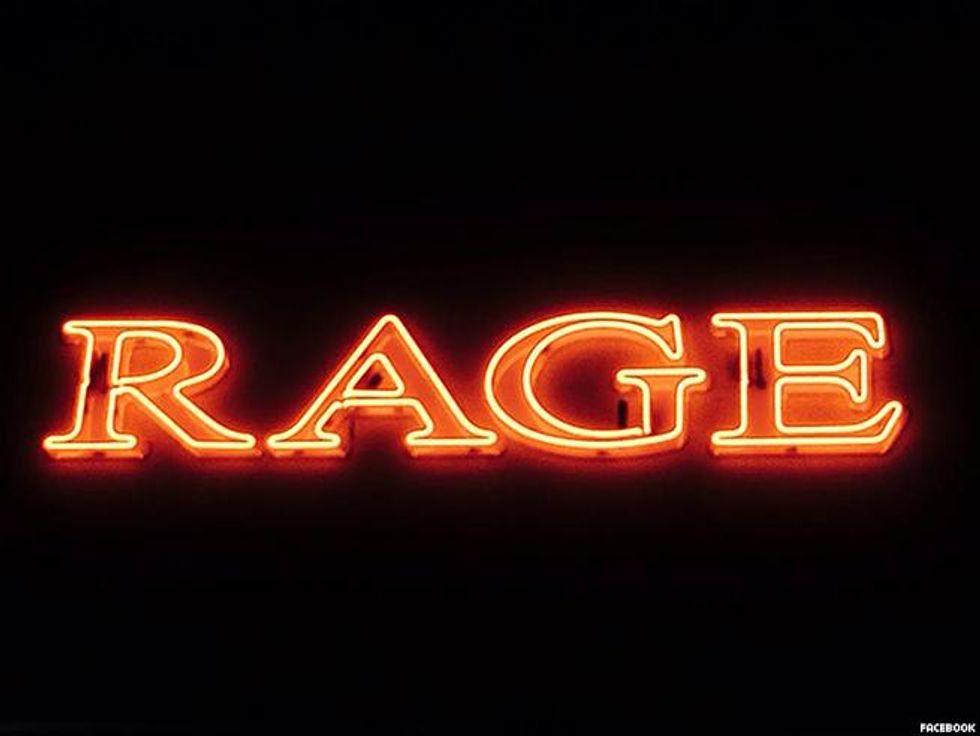
Rage shuttered in September 2020 due to financial difficulties related to COVID-19. Except for a brief window, bars in West Hollywood had been closed to prevent the spread of the virus.
Owners Robert Maghame and Saeed Sattari opened the gay bar on Santa Monica Boulevard in 1983, reports Wehoville. The closure was confirmed after the pair failed to negotiate with the landlord, Monte Overstreet. Neighboring bar Flaming Saddles had also closed after its owners could not reach a deal with Overstreet, whose many WeHo holdings include Out of the Closet and the Gold Coast.
Rage was known for Gameboi, a weekend party that attracted many Asian patrons, as well as its drag and cabaret shows.
Grand Central, Baltimore
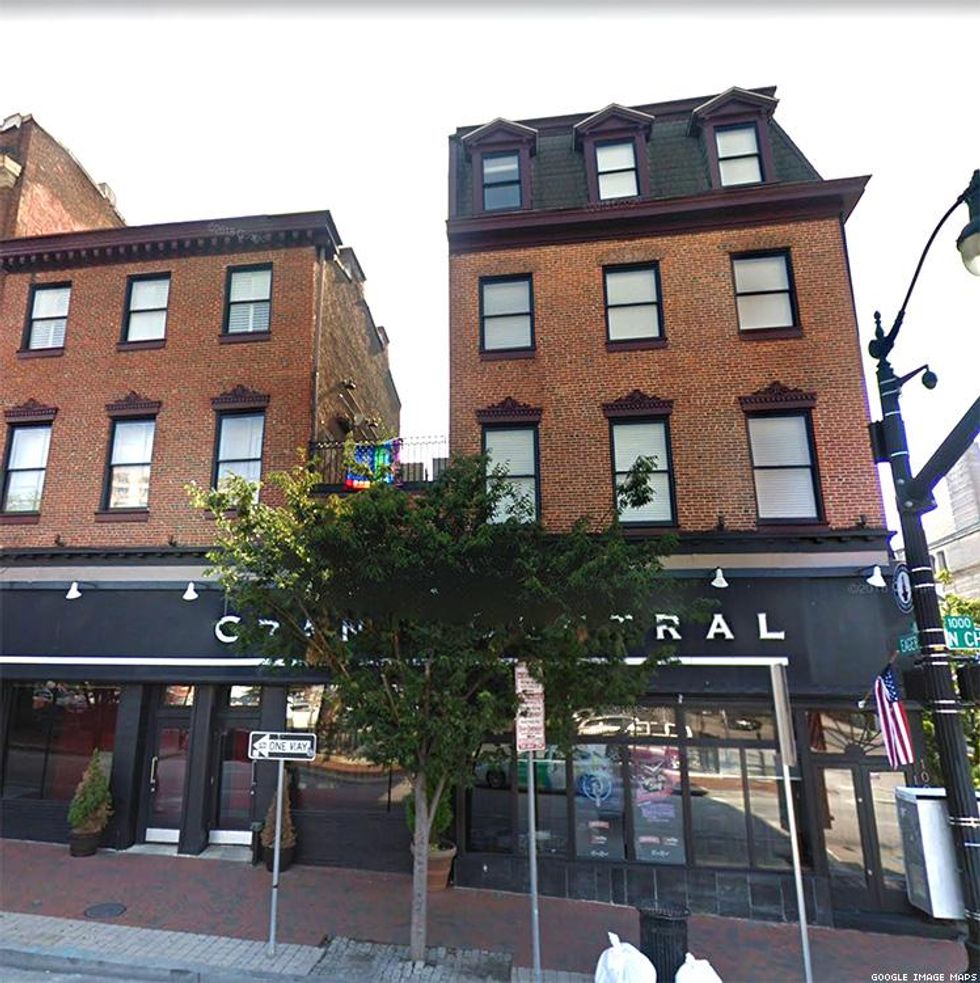
The days are numbered for Baltimore's most iconic gay bar and nightclub. In 2020, Grand Central owner Don Davis, fighting throat cancer, decided to sell the bar, which remained in operation until the "overwhelming challenges" of the pandemic, according to a farewell Facebook post. The new owner may redevelop it in the future as a "full-service lunch/dinner/bar concept," according to the Baltimore Sun. The establishment opened back in 1991 as the Grand Central Pub, expanding and dropping the "Pub" in 2003.
Albuquerque Social Club, Albuquerque, N.M.
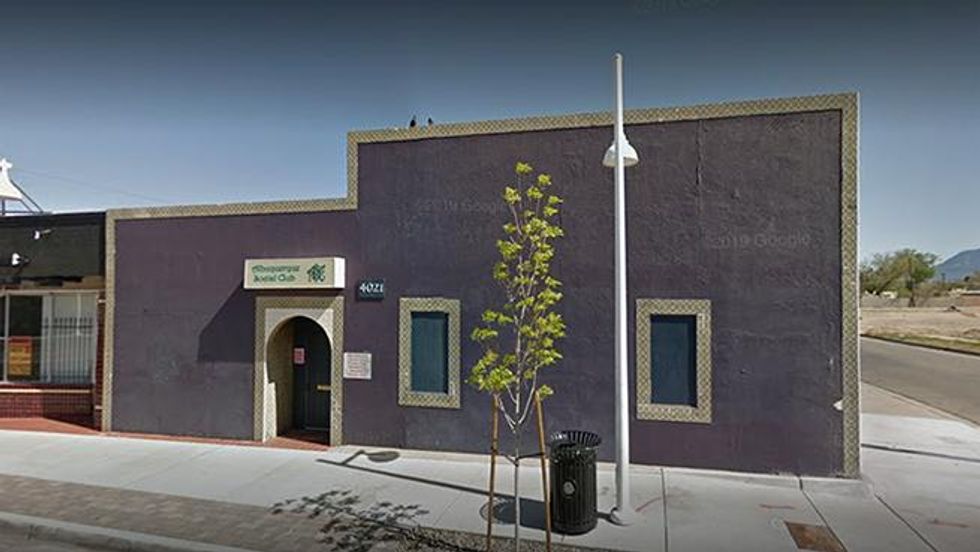
Sadly, there will be no more socializing at the Albuquerque Social Club.
The New Mexico gay club, known to locals as the "SOCH," operated for nearly four decades before shuttering in August 2020 due to financial issues tied to COVID-19.
The bar had first opened as The Heights in the 70s before taking on the Albuquerque Social Club name in 1983. Since then, it had established a reputation for growing the city's drag scene and as a gathering place for the LGBTQ+ community. SOCH was also unique in that, as a social club, it could only be accessed by due-paying members and their guests.
"If you were having a bad day, or you needed somewhere to go or you didn't want to go home, it was always a safe space," former manager and drag performer Kyle Peralta told the Albuquerque Journal. "And I think for a lot of people, just knowing that you had that safe space meant a lot."
Flaming Saddles, West Hollywood
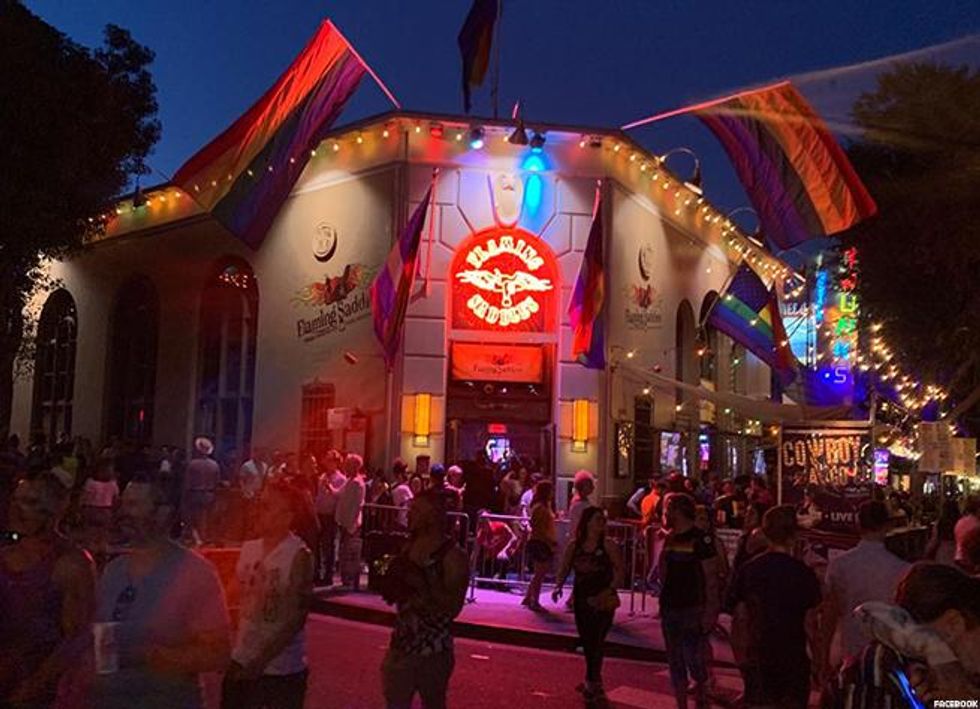
Flaming Saddles in West Hollywood has hung up its hat.
Jacqui Squatriglia and Chris Barnesgay, owners of the country-western bar, announced in August 2020 that COVID-19, combined with a failure to renegotiate the lease with the landlord during the pandemic, has led to its permanent closure.
The establishment, known for shirtless cowboys and cowgirls who danced on the bartop, opened in January 2015 on Santa Monica Boulevard. The original location in New York City has not shuttered.
We did our best and rose up... spun on poles, swung on ropes, poured great drinks, and danced our way to the top. No one did it better," the owners wrote in a Facebook post. "We are proud of all of you, the best managers, bartenders, servers, barracks, security, DJs, dancers and drag queens. ... We thank you."
"Flaming Saddles will march on!!!" they concluded, which left open the possibility for a future reopening.
Attitudes Nightclub, St. Louis, Missouri
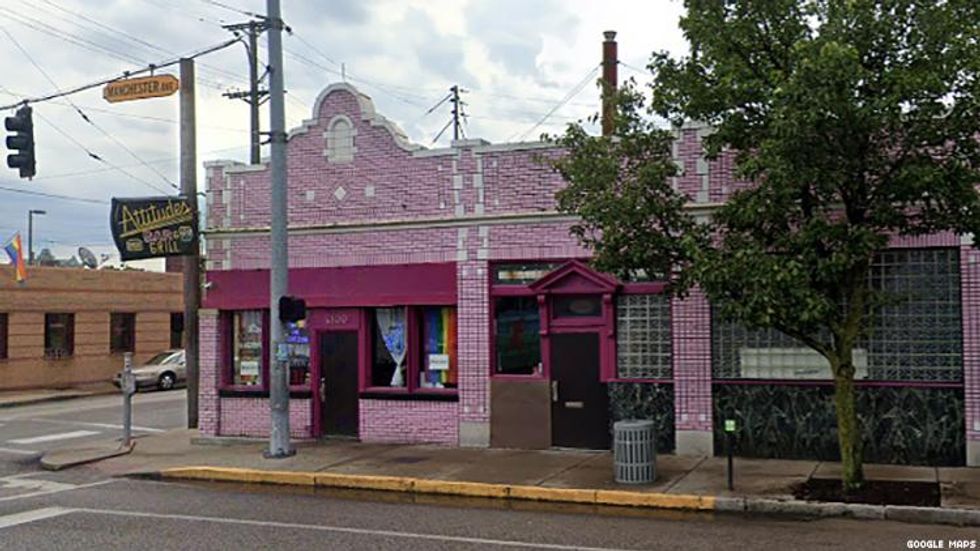
Attitudes Nightclub, the longest-running gay bar in St. Louis, has announced it is shuttering due to COVID-19.
"We are living in a time where we don't know what the future looks like," a Facebook statement read. "So many businesses, especially in the hospitality industry, have been hit hard by this pandemic. It has been rough, but we can't thank our current staff enough for how hard they have been working during this time. They've worn masks, followed CDC guidelines, and kept everyone safe! And all the while, they worked to provide some normalcy for you to enjoy a fun night out."
"Attitudes was a special space and became an iconic place for so many. Remember what we said as you left for the night, 'You don't have to go home, but you can't stay here!' Now is the time we will all leave and take our memories with us. We sincerely thank each of you! It has been our pleasure to serve you for the last 32 years!"
Attitudes was established about 32 years ago in the Grove neighborhood of the Missouri city.
Aut Bar, Ann Arbor, Michigan
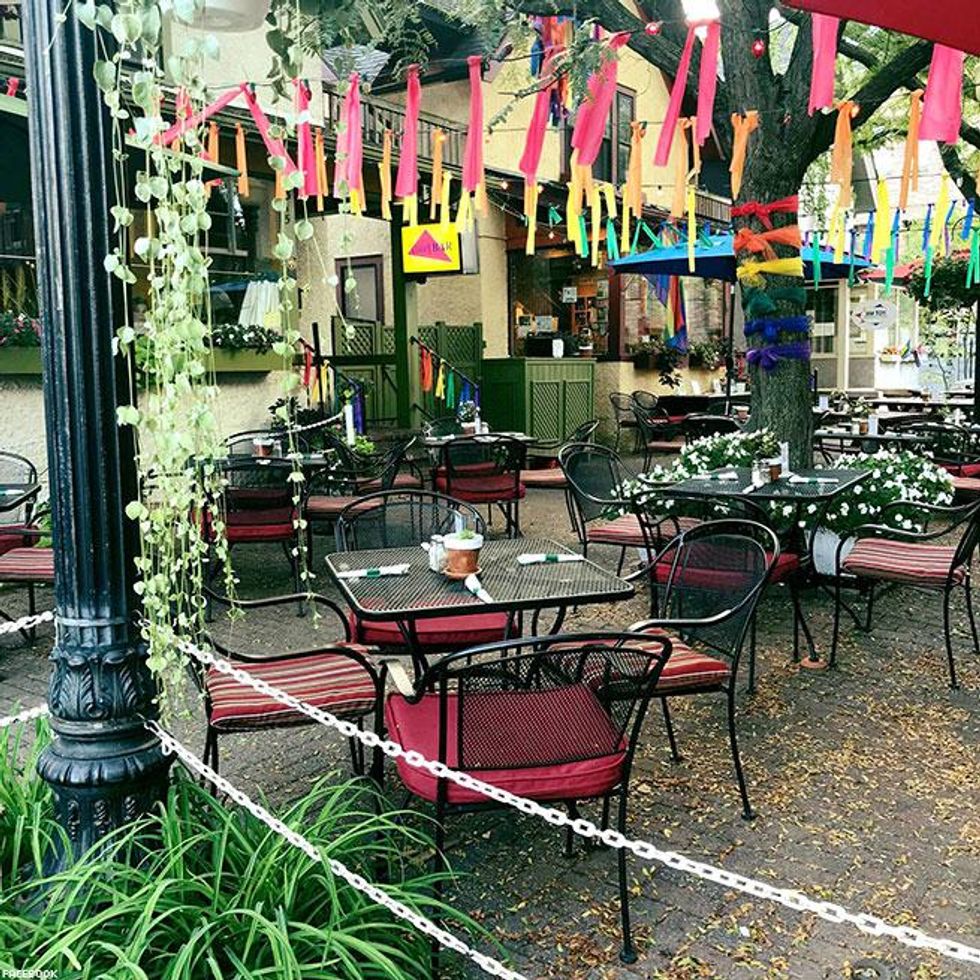
Aut Bar (the phonetic spelling of "out"), an LGBTQ+ institution in Ann Arbor, Michigan, closed shop in July 2020 following financial difficulties related to COVID-19 and other issues. Founded 25 years ago and purchased in 2019 by BarStar Group, Aut Bar's social media pages were transferred back to its original owners, Keith Orr and Martin Contreras, who will maintain them as a community space and possibly transfer them to a future proprietor.
Little Jim’s Tavern, Chicago
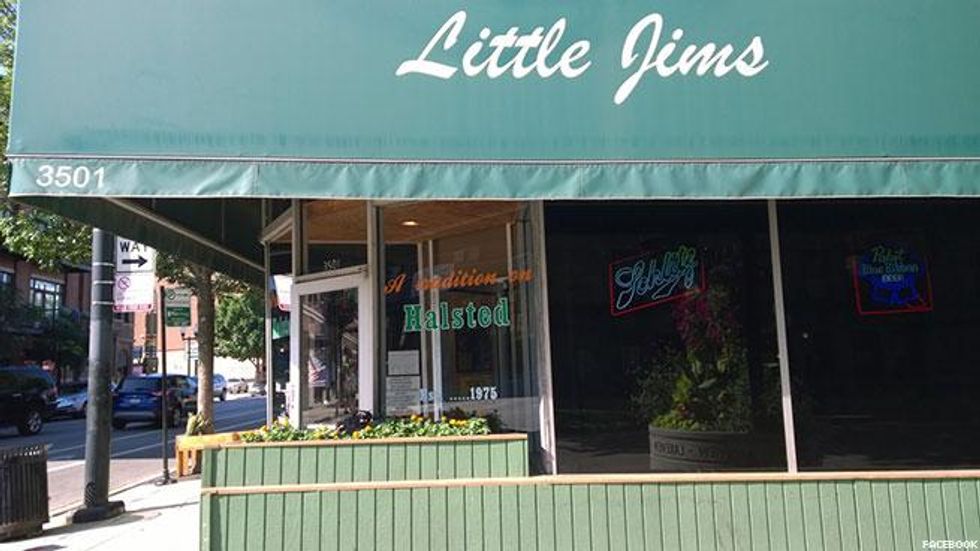
Little Jim's Tavern -- the oldest gay bar in Boystown, and the second oldest in Chicago -- closed its doors in July 2020 in order to open a satellite location for Howard Brown Health, an LGBTQ+ clinic. The dive bar, known locally as the gay Cheers, helped establish Halsted Street as a center for queer commerce. It is also remembered for being inclusive of patrons regardless of race or background.
"People can just be themselves here. They don't have to be fake," bartender Tully Bertorelli told Block Club Chicago. "We welcome everybody and no one cares if you're bi, trans, or any sexuality, gender or race. I'm going to miss seeing the room full of different colors of the rainbow coming together in one place."
Gym Sportsbar West Hollywood
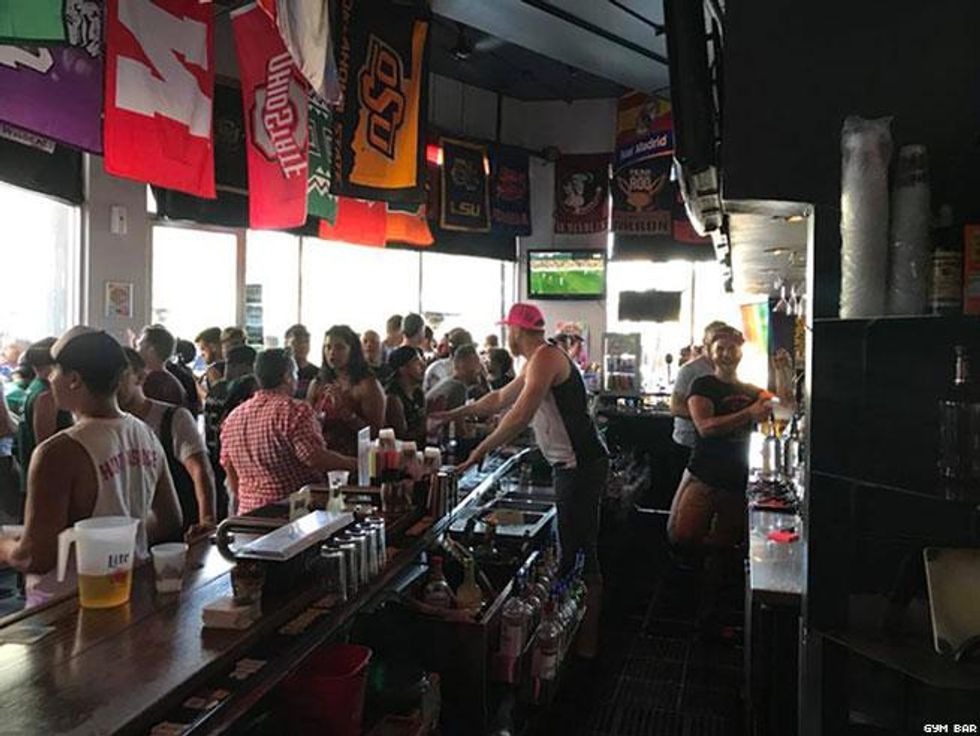
After a decade of serving pitchers (and catchers), Gym Bar shuttered in July 2020 as a result of the financial stress created by the COVID-19 pandemic, announced co-owners Hunter Haliniak and Rick Schmutzler in a Facebook video, in addition to "a really nasty one, two punch of a landlord who has been really inflexible in working with us." The West Hollywood haunt was a favorite among members of WeHo Dodgeball, who would fill the interior and patio after games, as well as fans of sports watching, darts, and trivia. "This isn't the end. This is probably the beginning of something special," said Haliniak.
Night Shift 2.0
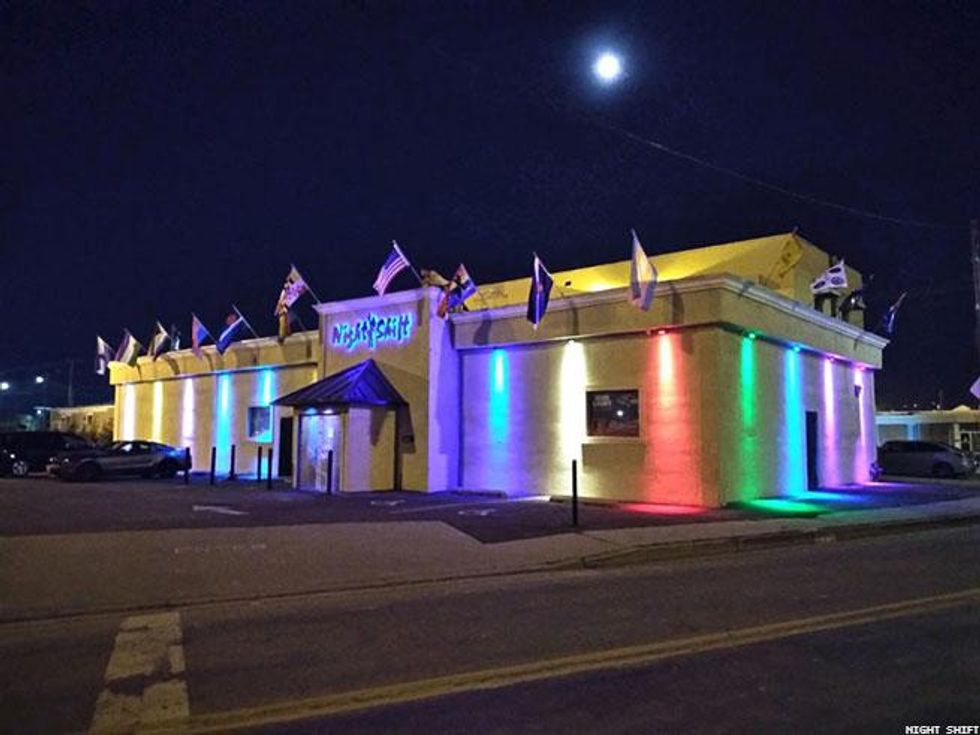
Less than one year after opening in the former location of an East Baltimore strip club, Night Shift 2.0 announced its last call in July 2020 on Facebook. "It is with a heavy and sad heart to announce that whenever the Coronavirus pandemic is over, Night Shift 2.0 will not be reopening," the message said. "The reasons are not important, what is important is that thanks to our supporters, patrons, regulars, performers, hosts, DJ's, producers, dancers, bartenders, staff and managers, we experienced 6 months of unbelievable fun and excitement that made memories to last a lifetime. For that, we're forever grateful."
Club Cobra, North Hollywood
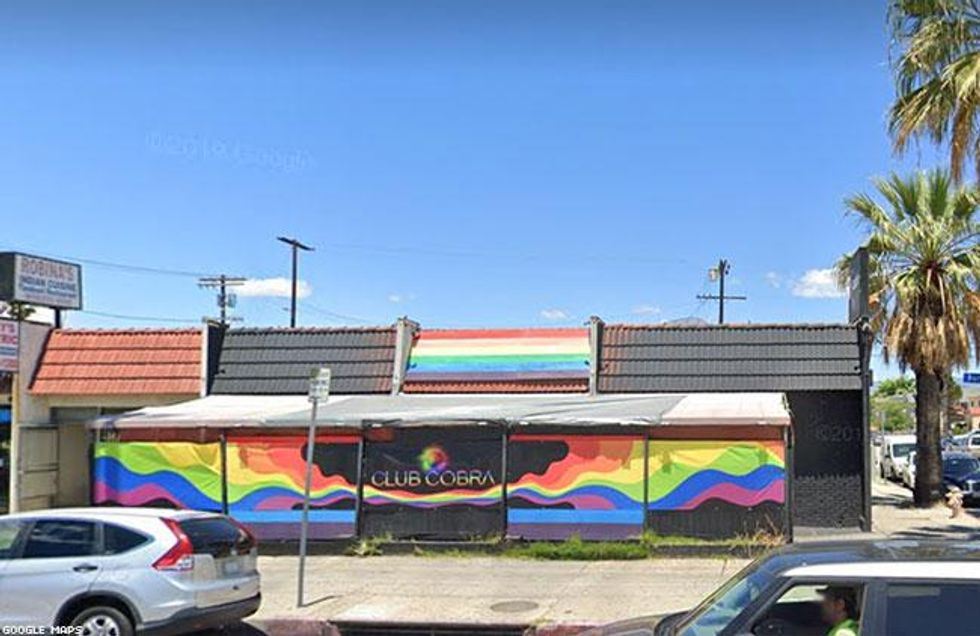
Another victim of the COVID-19 shutdown is Club Cobra. The LGBTQ Latinx bar was founded in 2007 and operated in North Hollywood for nearly 13 years before the pandemic prompted the building's property owner to sell. Coowner Julio Licon posted a thank you to the "Cobra Family" on Facebook: "I want to thank each and every one of our customers especially our faithful regulars... our Cobra Family. Together we made the LA LGBTQ+ scene undeniably the best in the country!" Club Cobra was known for Spanish-language drag nights and the longest-running transgender Latinx night in Los Angeles. He and partner Marty Sokol also operate a gay bar in East L.A., Club Chico, which will continue to host virtual events during the health crisis.
The Stud, San Francisco
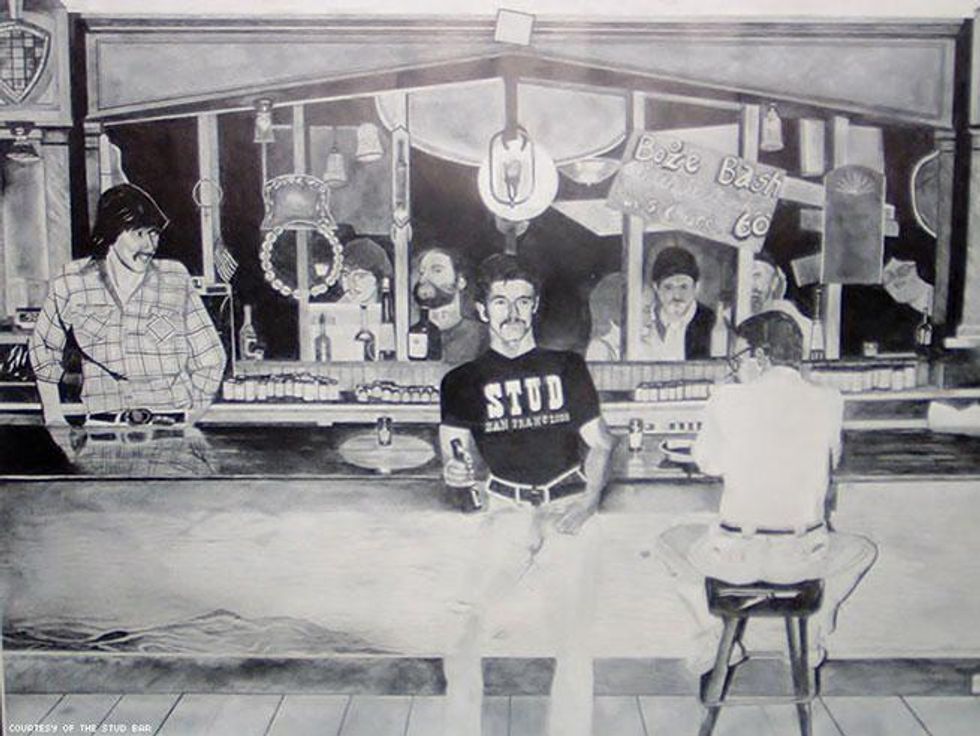
The Stud, San Francisco's oldest gay bar, shuttered its location of 33 years in response to the health crisis.
First opened in 1966 around the city's burgeoning leather community by cofounders George Mason and trans business owner Alexis Muir, who was rumored to be the inspiration of Anna Madrigal in Tales of the City, the Stud grew into an LGBTQ+ institution and safe haven.
It hosted many drag and community events over the decades. Trannyshack, one of S.F.'s long-running drag shows that included RuPaul among its starry headliners, was held there until 2008 and later rebranded in response to a controversy surrounding its name.
Located in South of Market neighborhood, the Stud survived the AIDS crisis and faced closure in 2016 due to a rent hike; a creative collective stepped in to save it.
Its temporary closure in March 20202, due to the city's shelter-in-place order, has led its co-owners to decide to close its physical location in lieu of paying rent indefinitely without substantial financial support. However, in a statement, co-owner Marke Bieschke assured patrons that "The Stud, the nightlife entity, is not dead. Rather, it will switch to a new business model until it becomes safe to open a new physical location.
"By closing the doors on our location -- a place that holds memories for almost the entire city, and which survived both the AIDS and app years, as well as two tech booms and two economic busts, all with wigs a-flyin' -- we're able to survive another day, in a new Stud incarnation," Bieschke wrote on 48 Hills. "Mobile Stud parties, pop-ups, appearances, and more are being investigated. Who doesn't want the Stud serving liquor and looks at their socially distanced lesbian wedding or drag Quinceanera?
"And after this is all over, a new permanent location, to help rebuild the city's shattered nightlife scene--and continue the Stud's rough-and-tumble legacy the only way we know how: with shots up and heels high."
BT2, Austin, Texas
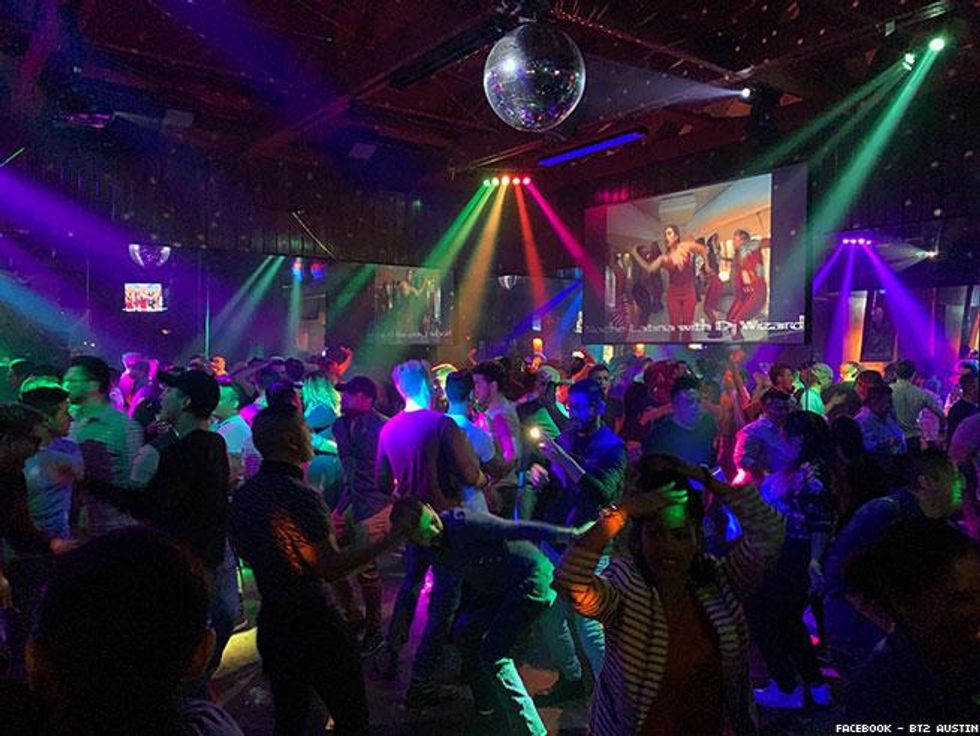
BT2, a gay bar in North Austin, had to permanently close its doors after being impacted by the COVID-19 pandemic, according to an update on its Facebook page. A queer institution, it traces its lineage back to 'Bout Time, which launched in 1984 and was reopened as 'Bout Time II in 2012. BT2 was known for its annual Thanksgiving dinner, drag shows, and dance floors.
Although BT2 is closed, co-owners Ray McDermett and Tino Calderon are urging members of the "BT2 family" to support its employees during the health crisis. A GoFundMe is "one last effort to help employees transition from the hope they had for their BT2 job to what lies ahead. It's the great unknown for many so whatever you're able to give would be greatly appreciate by all," they wrote on the crowdsourcing page.
Orchid, Washington, D.C.
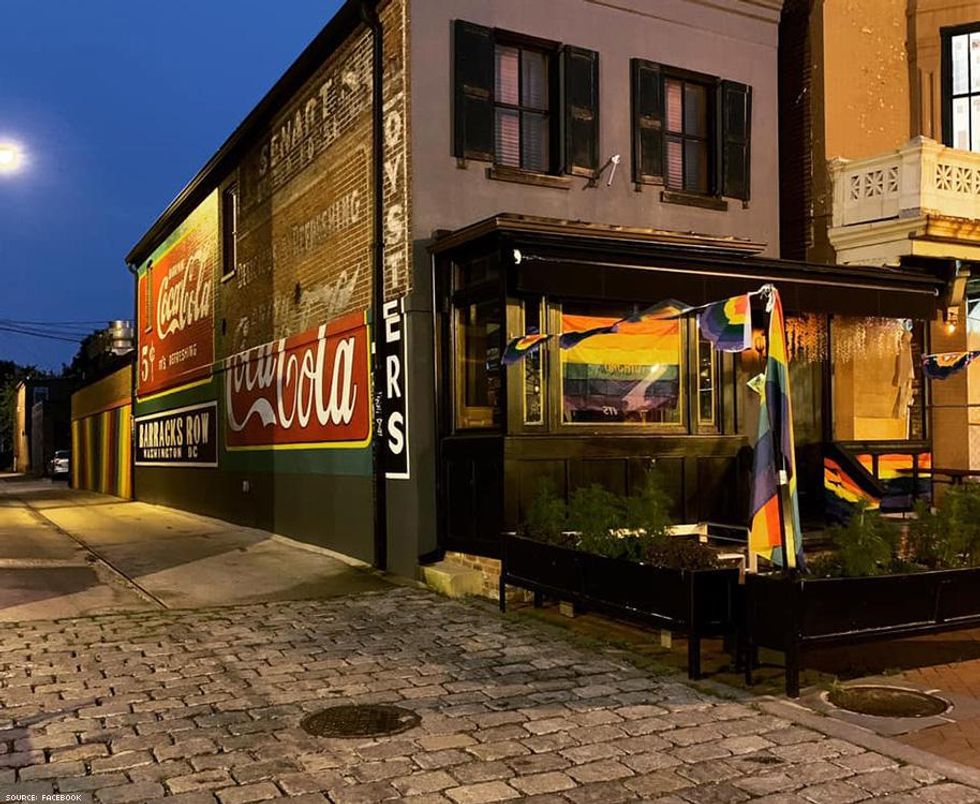
After only about one year, Orchid shuttered in Washington, D.C. The only gay bar on Barracks Row, a commercial strip near the Navy Yard, Orchid was known for its Prohibition-era style, a 40-foot marble bar, and an upscale menu that included avocado gazpacho, seared sea scallops, and magnums of rose. "When you limit yourself to a certain demographic it doesn't always go well," Tom Johnson, a managing partner in the company that operated Orchid, told Eater. "It's a beautiful bar, and I think it might be successful as something else."
Cobalt, Washington, D.C.
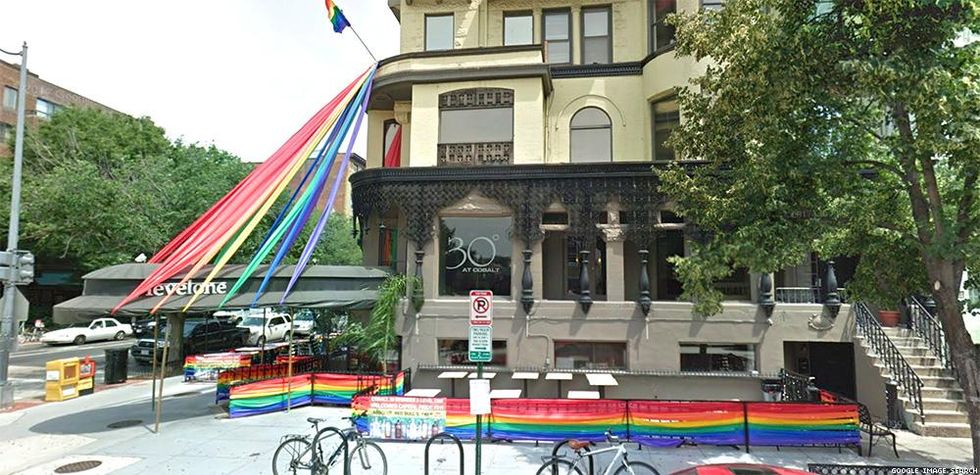
This three-story Dupont Circle bar/nightclub closed in March 2019 with little fanfare (a sign indicating water problems was an ominous sign). The building Cobalt occupied was recently sold and will soon house apartments. While owner Eric Little cited changing trends in the LGBTQ community, The Washington Post indicated the club never was able to find a loyal fanbase even though it operated for decades in D.C.
Bum Bum Bar, Queens, New York
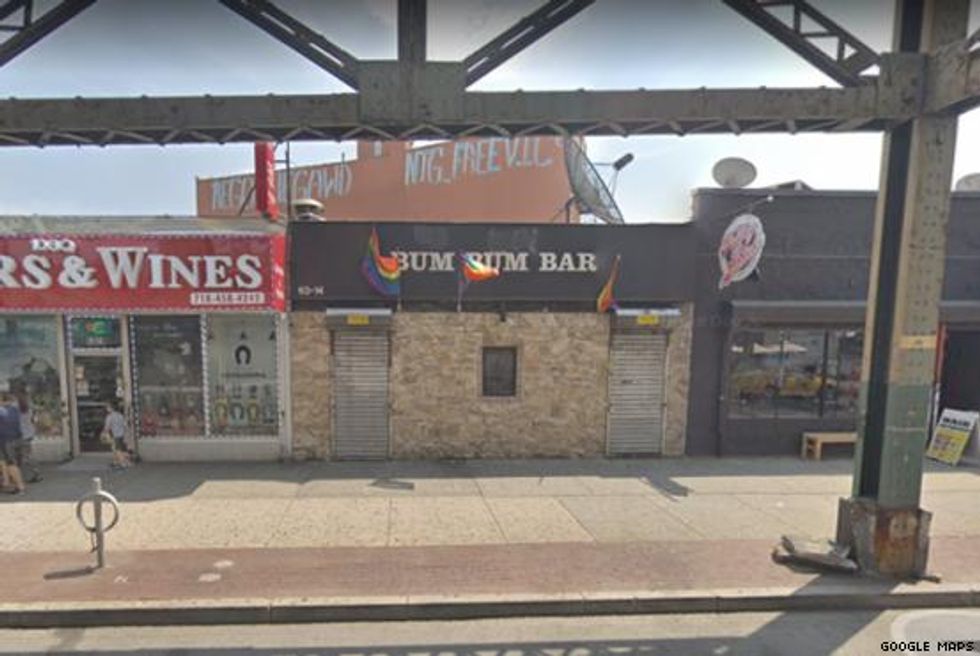
This lesbian bar, which catered to a Latina crowd, quietly closed its doors in late 2018. The reason for the closure is not clear, with some speculating rents and gentrification were behind it. Bum Bum Bar was a fixture in the Woodside neighborhood of Queens since the early 1990s, hosting dance parties and helping the Jackson Heights Pride Parade get off its feet.
Bar Mattachine, Los Angeles
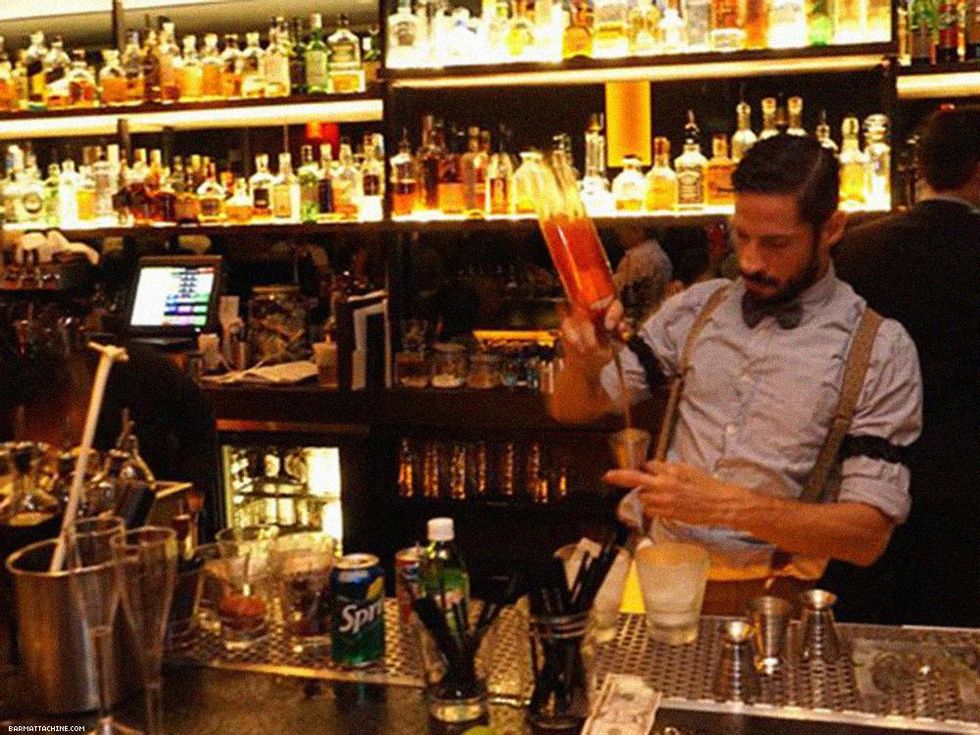
Downtown Los Angeles's Bar Mattachine, one of the area's few gay spaces outside of West Hollywood, shut down in August 2018. The L.A. space served craft cocktails and featured trivia nights, drag performances, and lounge parties.
The bar's name paid homage to the Mattachine Society, an early gay rights organization founded by Harry Hay in Los Angeles. It also featured a cocktail named for Hay and others named for one of his lovers, fashion designer Rudi Gernreich, and Pershing Square, once a gay cruising ground.
In an interview with The Advocate, owner Garrett McKechnie said gay bars were still relevant. "Gay bars are not [just] there now so we can feel safe ... they are there so we can be together," he said.
Town, Washington, D.C.
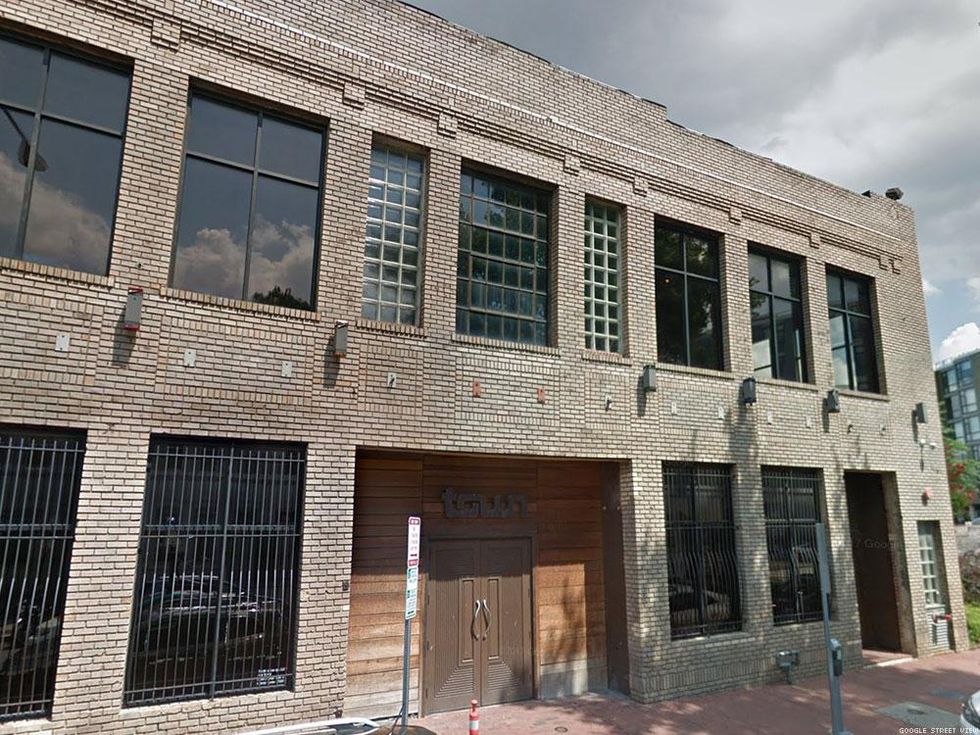
From 2007 to 2018, Town was the largest nightclub to cater to the LGBT community of Washington, D.C. The club was built on U Street, a corridor in the nation's capital that experienced rapid gentrification during the Obama administration. Town helped spark this upscale neighborhood transformation, which also led to its demise. It was sold two years ago to a developer who plans to convert the two-story structure into condos. Locals remember the bar for its bear nights, drag shows, and a queer and inclusive culture in a city that can feel very buttoned-up.
The Gangway, San Francisco
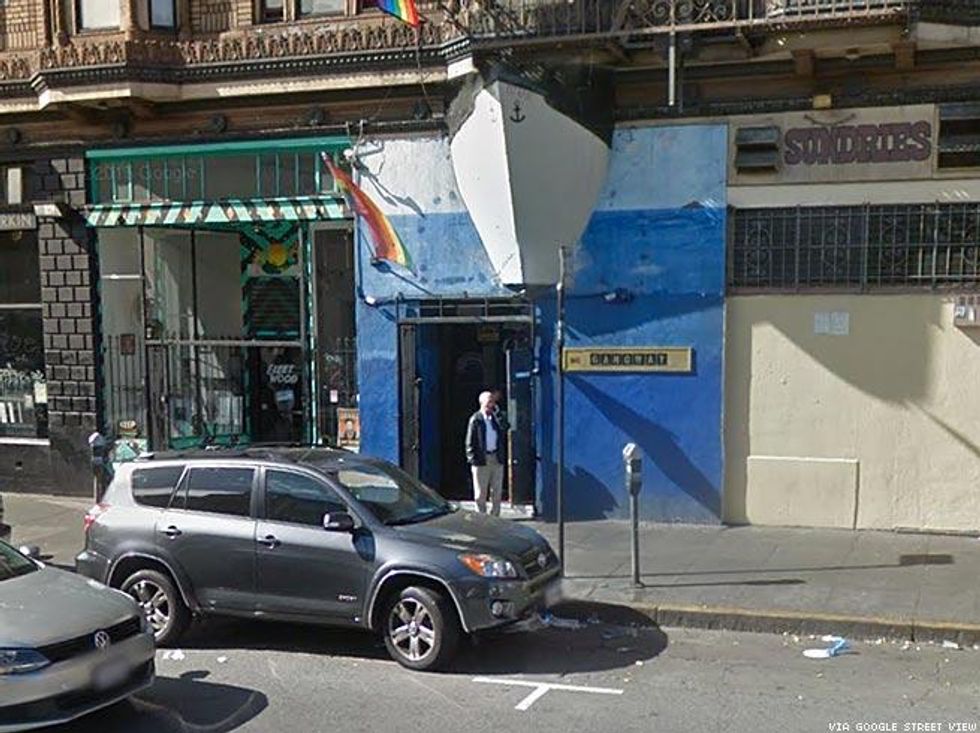
The Gangway closed in late January 2018. It was known as San Francisco's oldest continuously-operating gay bar -- it opened in 1910 and began catering to a gay clientele in 1961. The Tenderloin spot brought in an older crowd and was rarely busy in its later days. A lawsuit and the death of a manager helped precipitate the closure -- it will be replaced by a kung-fu themed laundromat.
G Lounge, New York City
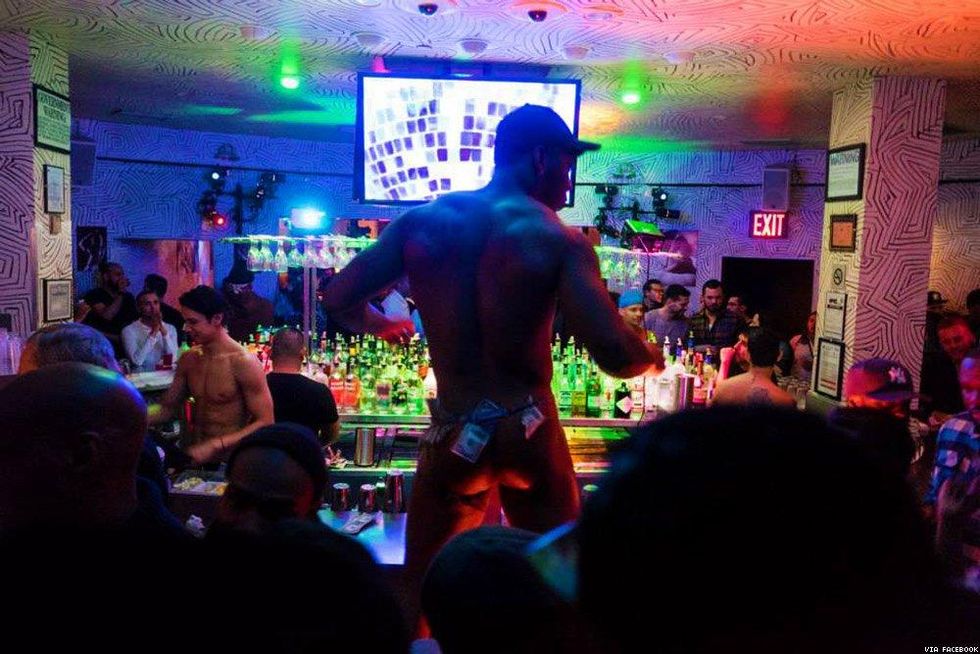
The popular G Lounge in Chelsea is one of the latest casualties of the gay bar die-off. After opening in 1996, the watering hole became a mainstay for Gen X and millennial queers. Though appreciated for its hot bartenders and diverse clientele, online reviews have not been kind as of late.
MJ's, Los Angeles
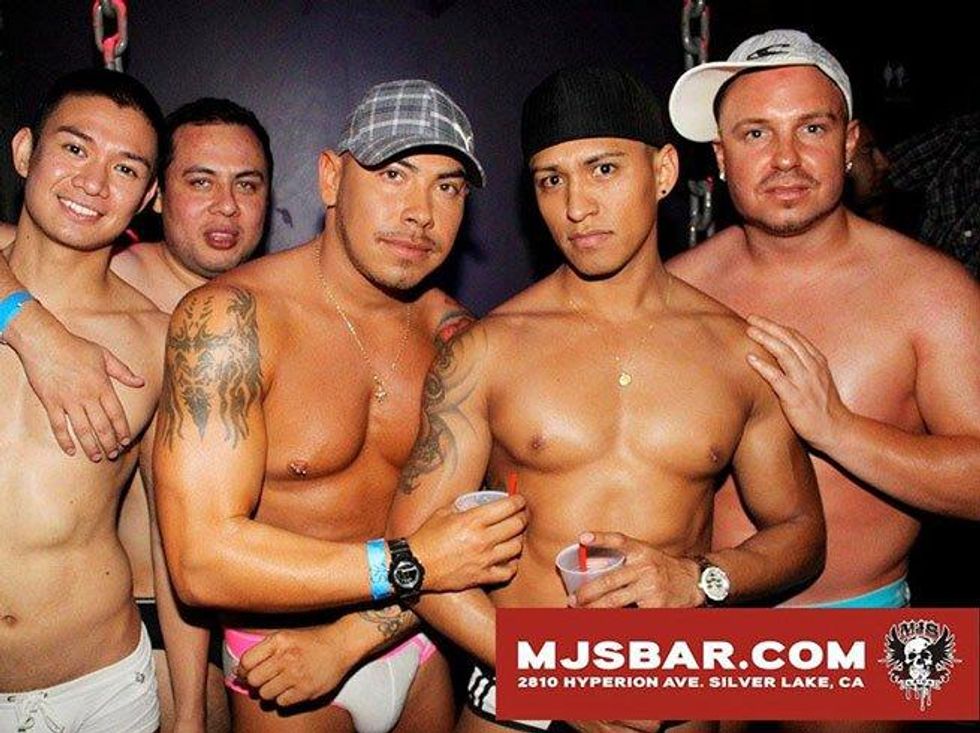
As a club, cruisey MJ's was a happy medium between Silver Lake's other gay bars -- the rough-and-tumble Eagle and the PG-rated, hipster-friendly Akbar. Either way, it couldn't survive and closed in 2014.
Bar-tini, New York City
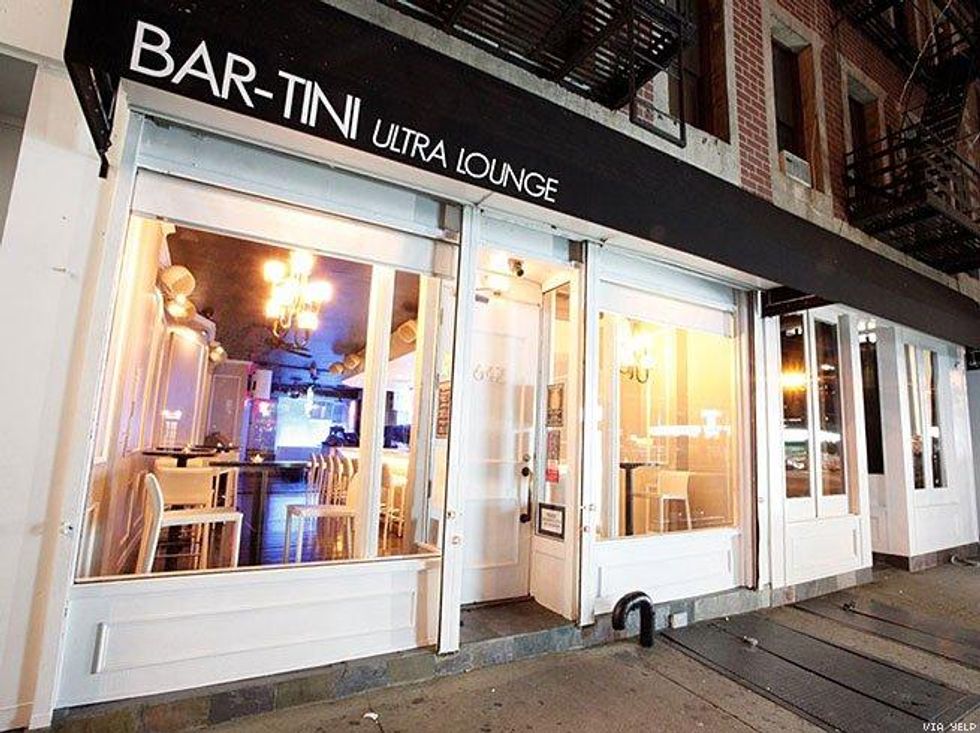
This sleek space in Hell's Kitchen once drew throngs of upscale gay men to sip its variations on classic cocktails. Weekly drag shows were another attraction. A sad story is connected with the bar; a manager, Sean Verdi, died suddenly at age 23 in 2014, possibly of a drug overdose, in a Central Park South apartment belonging to Ian Reisner of Out NYC hotel fame (and known more recently for hosting a reception for antigay presidential candidate Ted Cruz). Verdi had hoped to open his own bar someday.
Deco, San Francisco
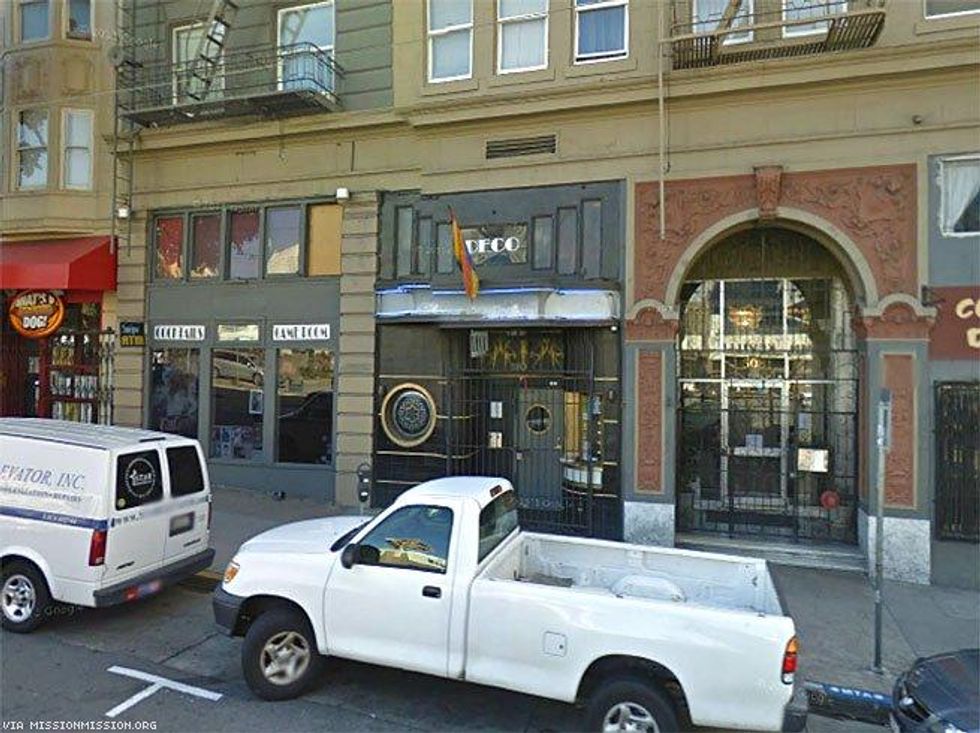
Drag shows. Karaoke. Amateur strip shows. Sassy, friendly bartenders. And cheap drinks. There was nothing not to love at the Deco Lounge in San Francisco's Tenderloin, where queens such as Ginger Snap, Duplicity, and Holly DeVille reigned supreme, and patrons had their choice of activities in the multiroom, multilevel space -- there was one room with a dance floor, another with pool tables. And there was the gorgeous art deco back bar that gave the club its name. But the Deco era ended after an ownership change in 2012.
Esta Noche, San Francisco
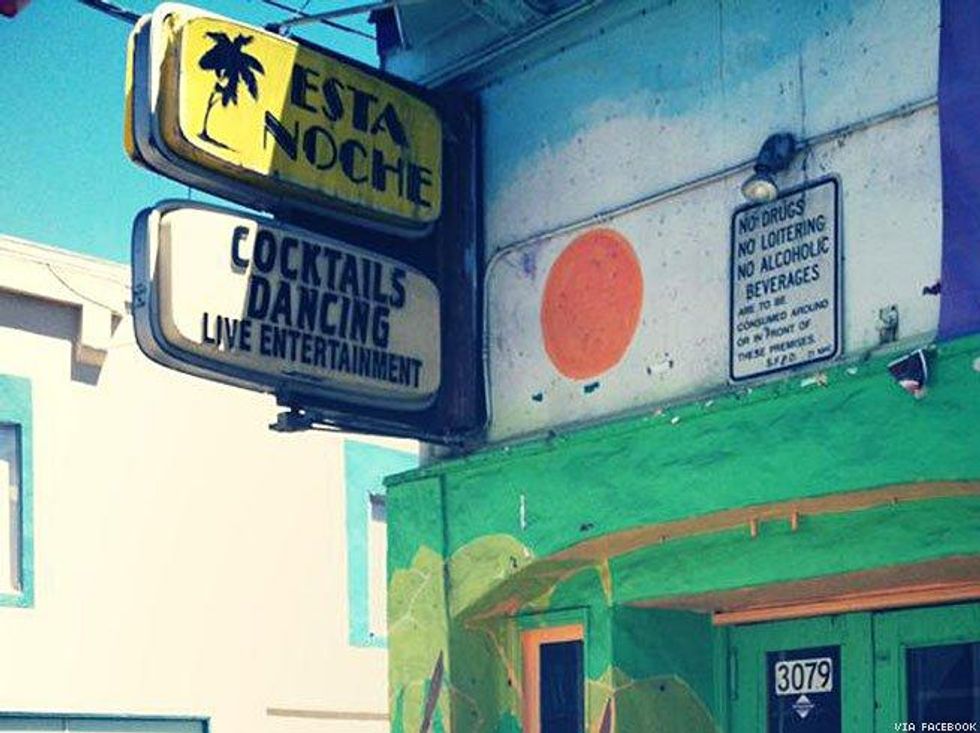
This much-loved dive bar in the Mission shut down in 2014. Known for its drag shows and queer Latino crowd, Esta Noche made a memorable appearance on the first episode of HBO's Looking.
Jewel's Catch One, Los Angeles
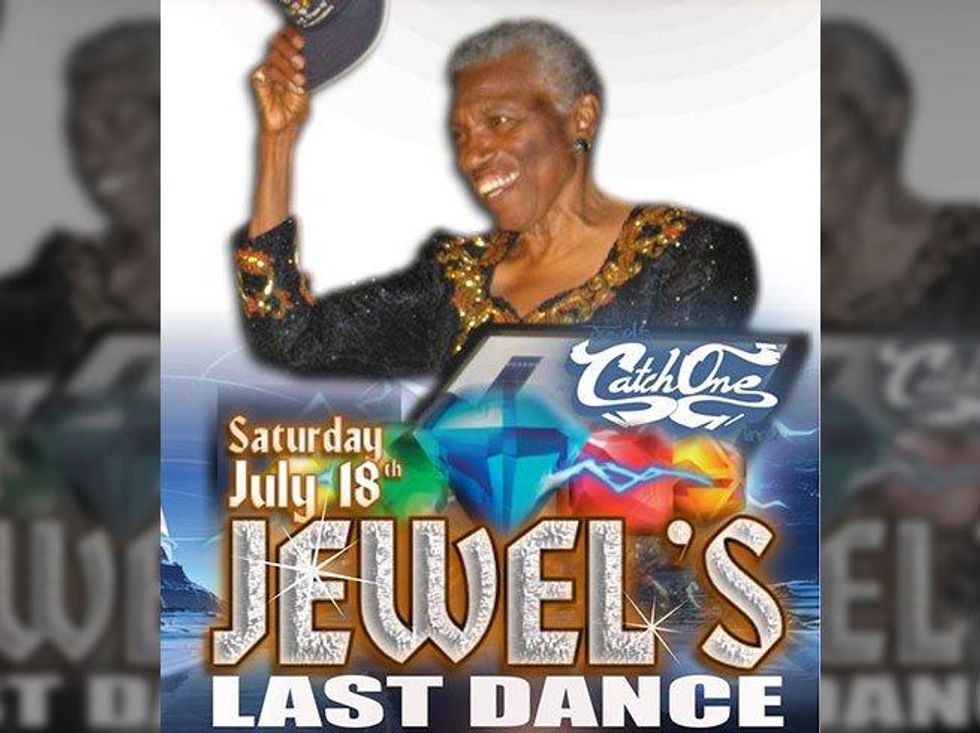
Jewel Thais-Williams busted through the male-dominated, mostly-racist gay club culture of the early 1970s by opening Jewel's Catch One, a disco located in a struggling neighborhood near downtown L.A. Catch One would welcome all to its dance floor and become an institution, even hosting a Madonna record release party in 2000. The club still hosts some parties, though Thais-Williams is no longer affiliated -- she runs a health clinic next door.
Kok, San Francisco
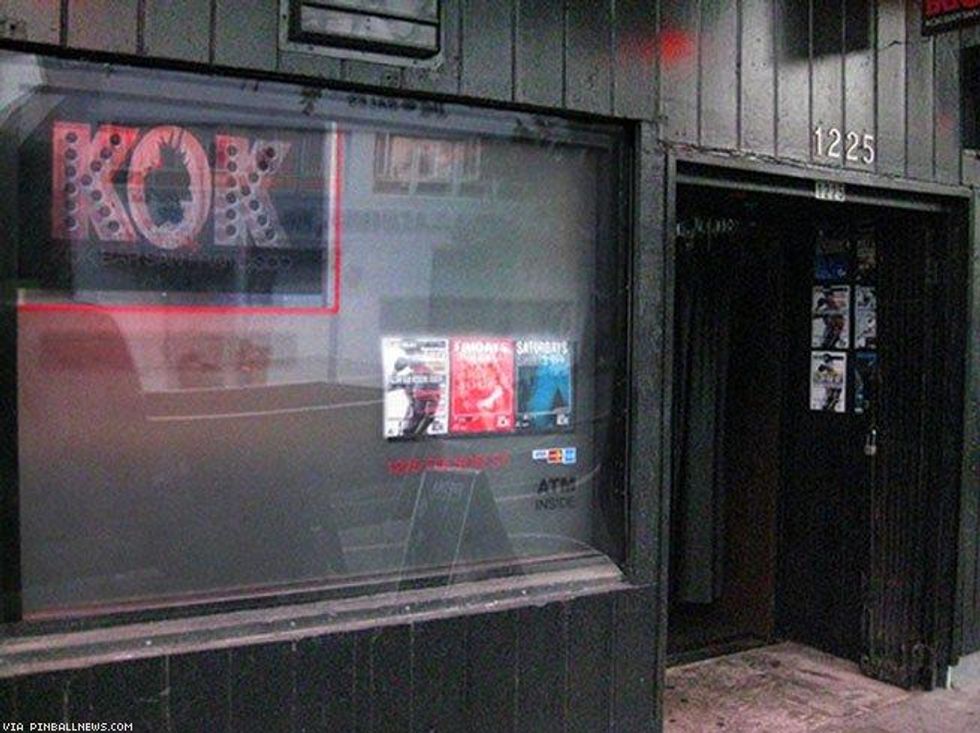
"Infamous" is a name often attached to the former Kok bar, known for its fetish-friendly, leather daddy crowd. The bar had numerous iterations before 2013 (Ramrod, anyone?), when it became the more family-friendly Driftwood. RIP Friday night Pants Off Parties.
Le Barcito, Los Angeles
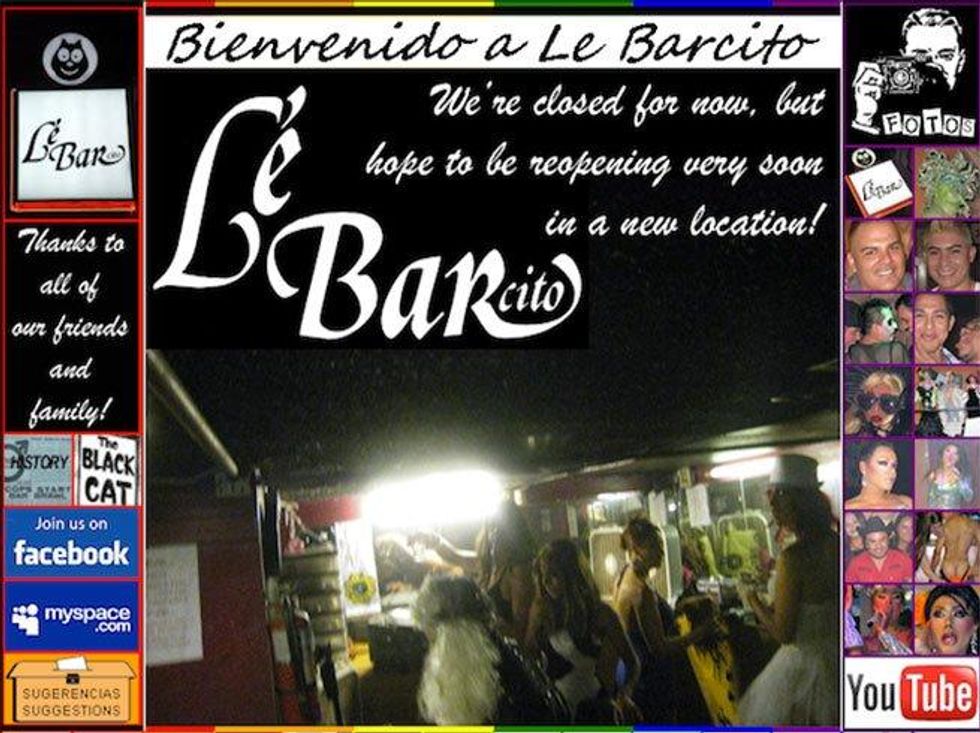
This tiny Latino drag bar was a hoot until it closed in 2011. It actually occupied the same spot as Black Cat, a gay bar that was the site of protests and resistance in 1967 following a jarring police raid (the incident was the impetus for The Advocate coming into existence). After Le Barcito closed, a gastropub opened, appropriately called The Black Cat.
Lexington Club, San Francisco
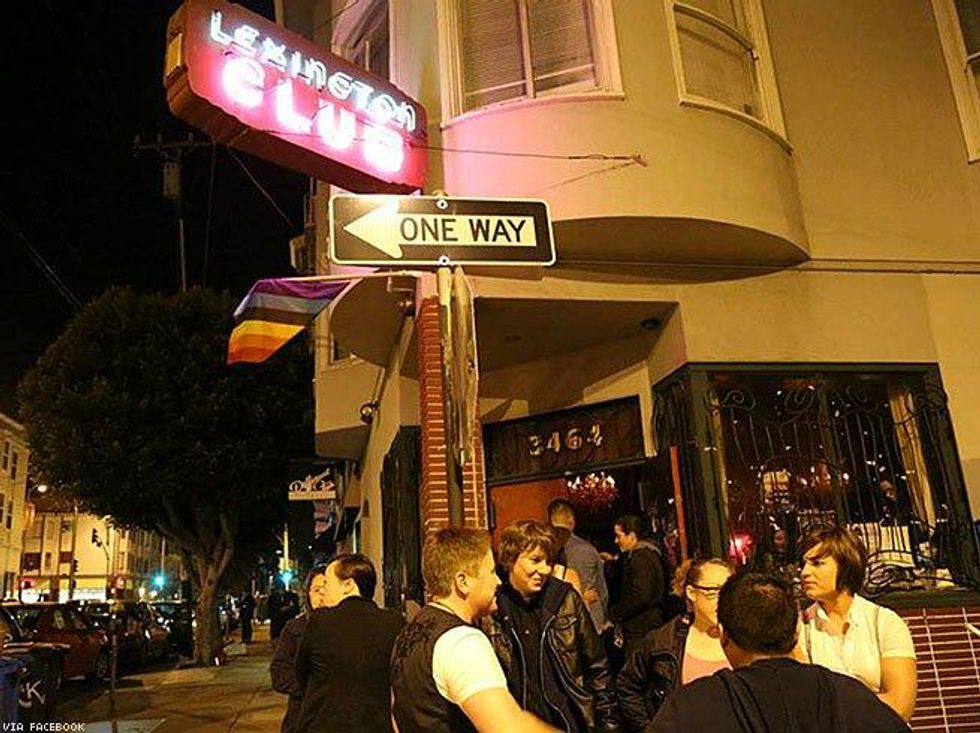
This self-declared space for the dykes, queers, artists, musicians and neighborhood folks in the Mission shut its doors in 2014 after 18 years of business. In a heartfelt note to patrons, owner Lila Thirkield lamented her rent increase and the growing cost of living in San Francisco. She ended her post on a positive note, saying queer people will always have a place in San Francisco.
Marlena's, San Francisco
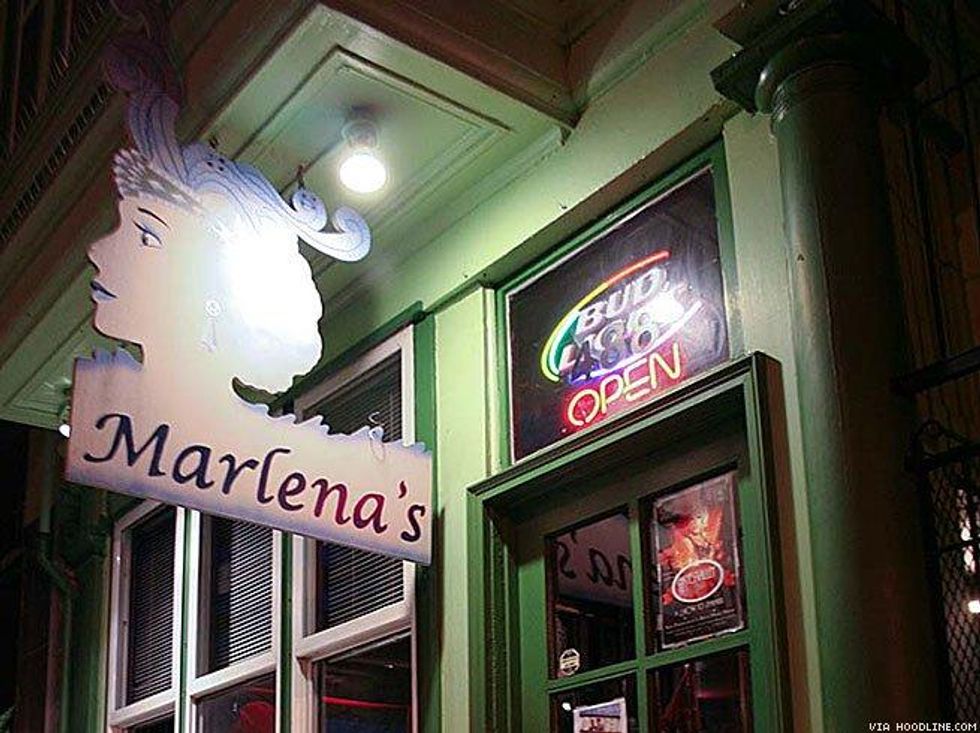
Marlena's was a beloved institution in S.F.'s Hayes Valley neighborhood, where it opened shortly after the 1989 earthquake. The cozy, friendly club was named for the drag persona of owner Garry McLain, a.k.a Marlena the Magnificent, Empress XXV of the Imperial Council. It was known for its weekly drag shows and for going all out for holidays; at Christmastime, McLain would display his collection of 1,400 Santas. When it closed in 2013, a contributor to SFist lamented, "We don't want to live in a world with no Marlena's, Hayes Valley's single greatest bar, gay or otherwise."
Numbers, West Hollywood
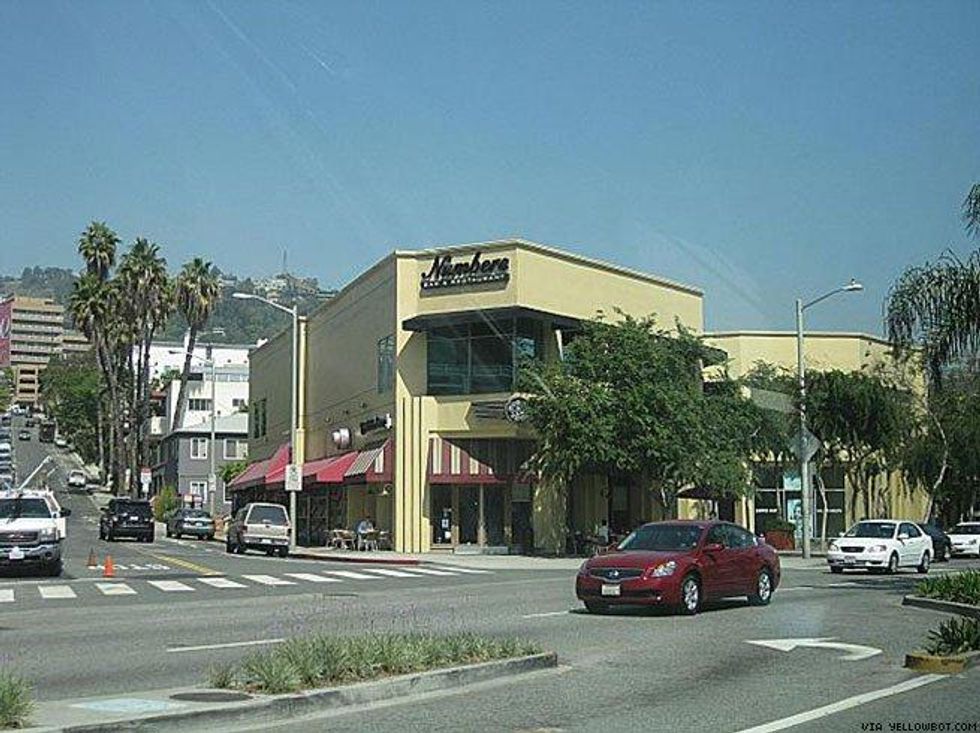
This second-floor upscale bar and restaurant overlooked the action on Santa Monica Boulevard. The bar's moniker didn't just refer to the digits exchanged within, but often the dollar amount required to keep certain young men in your company. The bar closed around 2009 and the location is now a branch of the Los Angeles LGBT Center.
Rawhide, New York City
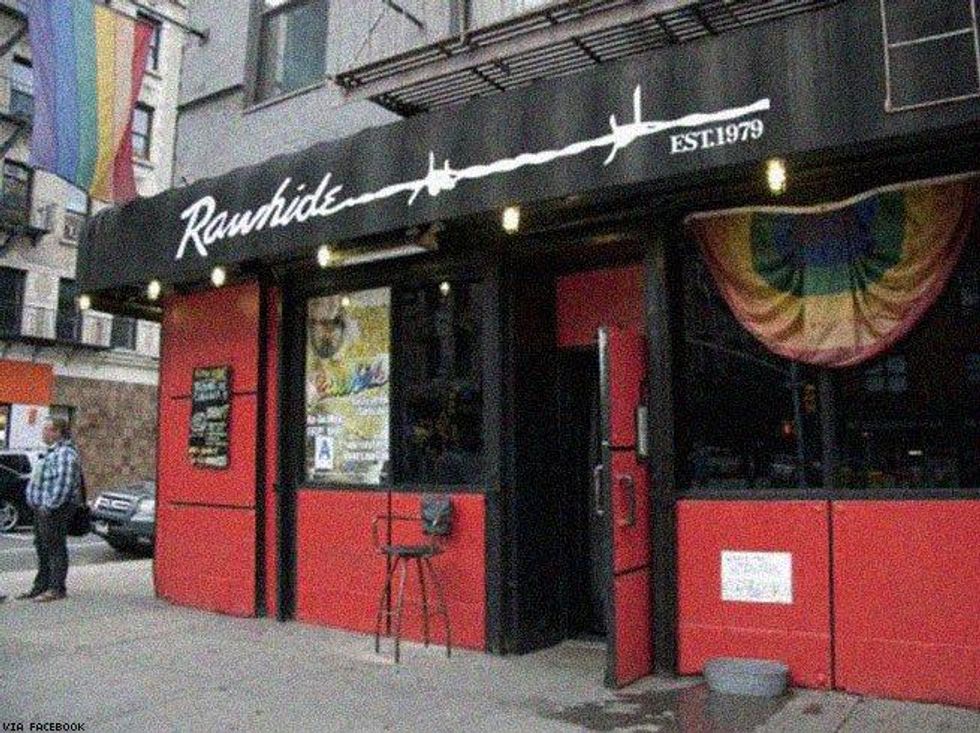
When Rawhide closed due to a rent increase in 2013, after 33 years in business, the Chelsea spot was mourned as "one of the last of a handful of old-school, unpretentious gay bars" in the city, as a blog called Jeremiah's Vanishing New York put it. It was the oldest Levi's-and-leather bar in New York, and it was the hangout for a friendly neighborhood crowd. No less than Christine Quinn, a a former New York City Council speaker and mayoral candidate, sang its praises. "For many years there were Latino guys from the neighborhood who had a folding card table every Friday and Saturday night and played dominoes," she once told New York Magazine. "And they knew every guy who walked into the Rawhide, and every guy that walked in the Rawhide knew them. A leather bar may or may not be the best example, but it is the type of neighborhood experience we want to be able to have, what Jane Jacobs called 'the eyes on the streets' all watching out for each other."
Splash, New York City
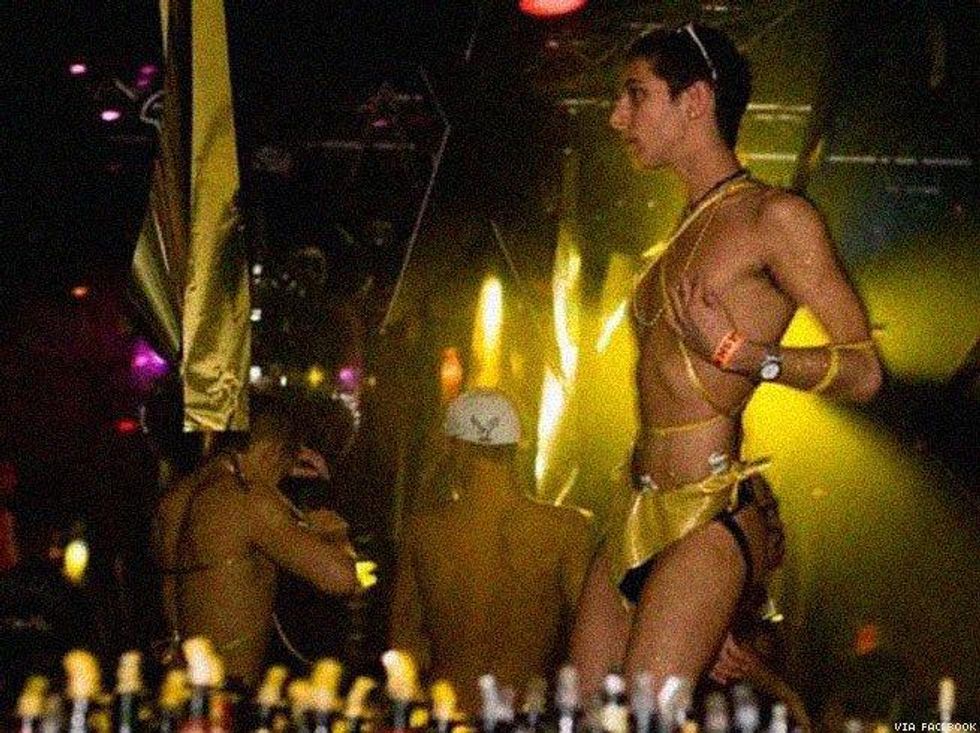
The Chelsea super-club -- two stories, 10,000 square feet -- for much of the 1990s and 2000s, Splash went dry in the summer of 2013. Yes, there really was a working full-length shower.
The Spotlight, Los Angeles
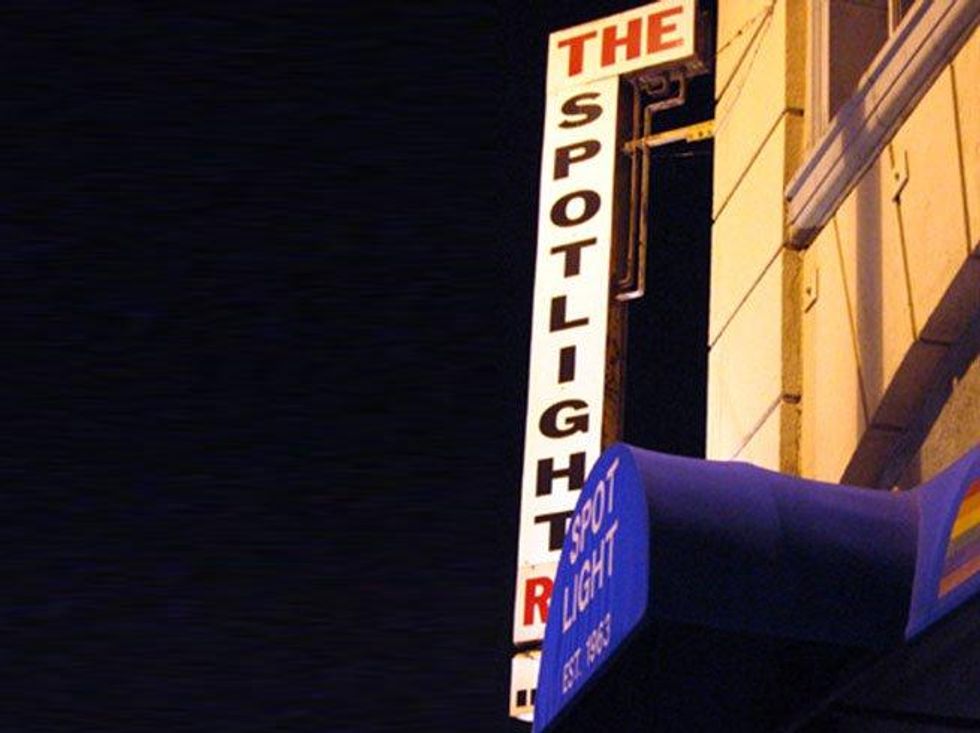
Before Hollywood got its glitz back, this dive bar was a notorious venue for drugs, sex, and cheap drinks when it closed in 2011. The Spotlight's colorful characters seemed out of a Charles Bukowski novel, especially in the morning (the bar operated nearly 24 hours).
The View, New York City

To New Yorkers, the View wasn't a talk show but a beloved Chelsea bar known for its drink specials and casual atmosphere. "Who can pass up $1 margaritas and cosmos?" noted one customer in a Yelp review. Plus the drinks were strong and the music was good -- lots of classic '80s tracks -- but not so loud as to drown out conversation. The View's reputation helped draw straight guys and gals to rub (and lift) elbows with the gay clientele, but everyone seemed to get along. However, the bar passed from view in 2010.
The Palms, West Hollywood
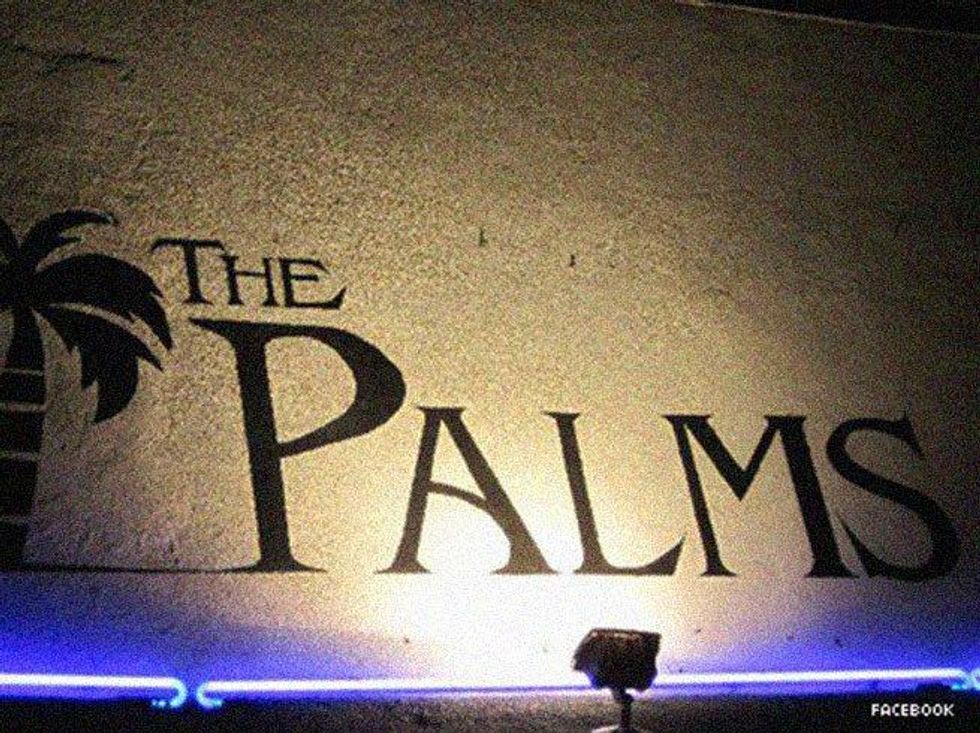
One of L.A.'s last lesbian bars, the darkly lit Palms stopped serving Santa Monica Boulevard patrons in 2013. Open for nearly 50 years, the cozy spot was a favorite spot of celebrities from Janis Joplin to Melissa Etheridge to Ellen DeGeneres. This much-missed spot is destined to be the site of a mixed-use development on Santa Monica Boulevard.
The Other Side, Los Angeles
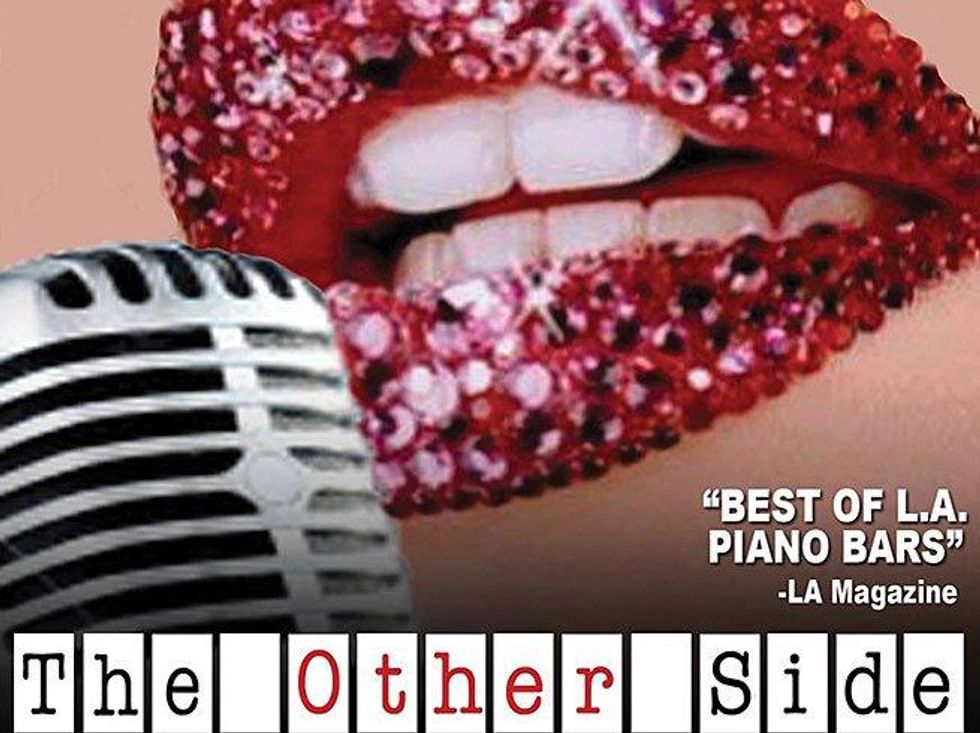
This piano bar operated for decades in Silver Lake, back when police raids were common. Surprisingly, the owner of the bar shut down the establishment in 2012 because he was retiring -- not because of an aggressive landlord or a sudden drop in business.
Vlada, New York City
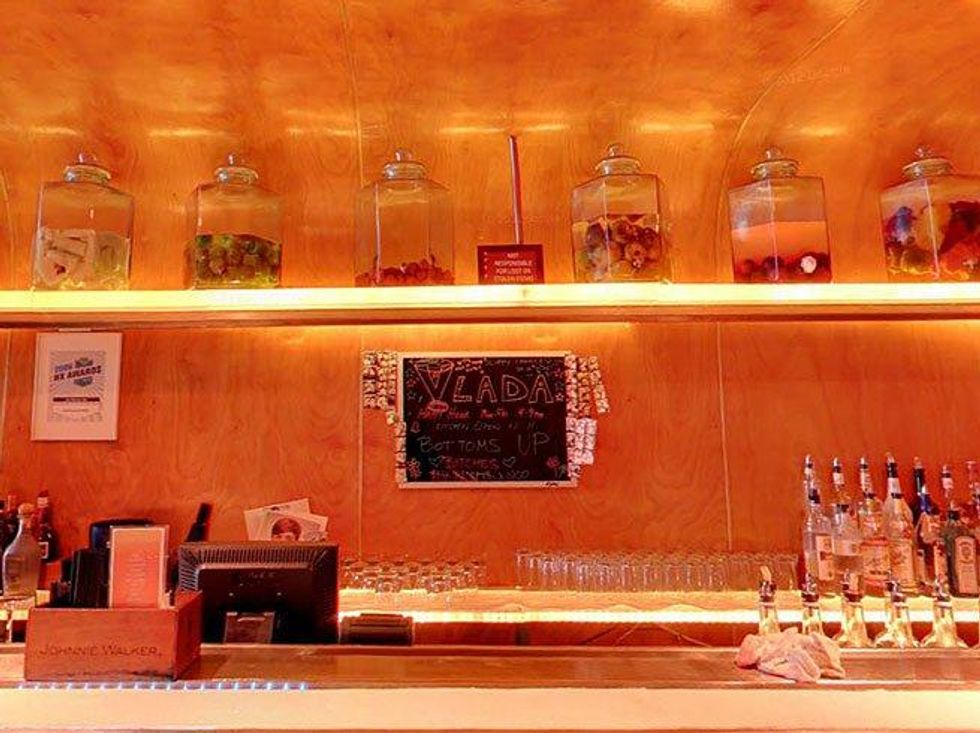
The Theater District Russian-themed bar known as Vlada is no more; it became Infuse 51 in 2014 and then closed again. This watering hole looked like the interior of a submarine and was appreciated for its healthy vodka selection. Everyone from theater boys from power gays would stop in for a post-work drink.
The Roxy, New York City
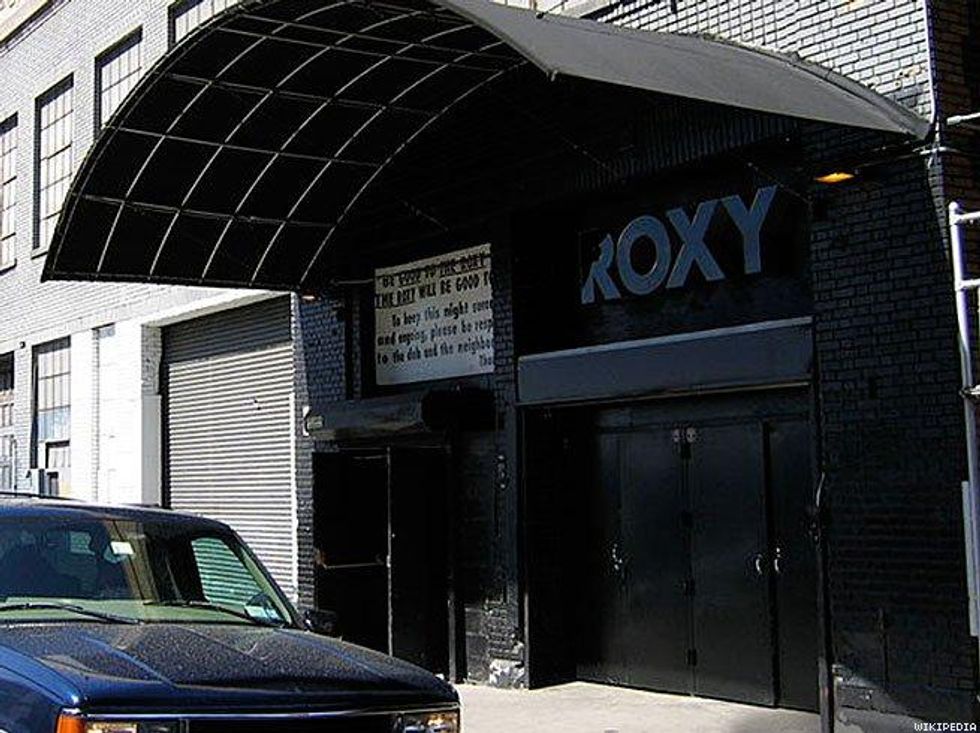
This New York institution in far west Chelsea opened in 1990, before the area became a throbbing art center. Most gay New Yorkers can claim at least one drunken night here -- there was an open bar if you got there early enough -- and some can even say they say Madonna or Beyonce perform there. The Roxy shut down in 2007.
The Parlour Club, West Hollywood
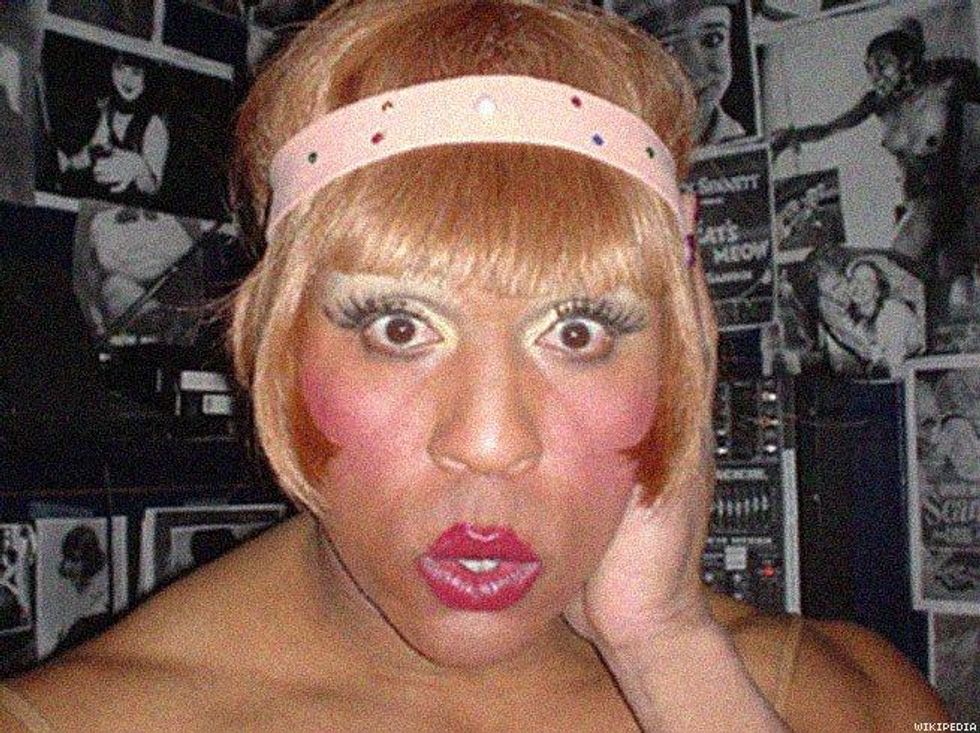
A hip spot in the Russian area of West Hollywood during the early and mid-2000s, the Parlour Club featured alterna-dance parties, as well as 1920s-themed events. Drag legends like Vaginal Davis (pictured) and Jackie Beat served as unofficial royalty there, while celebs like Drew Barrymore were regularly spotted.
Circus Disco, Los Angeles
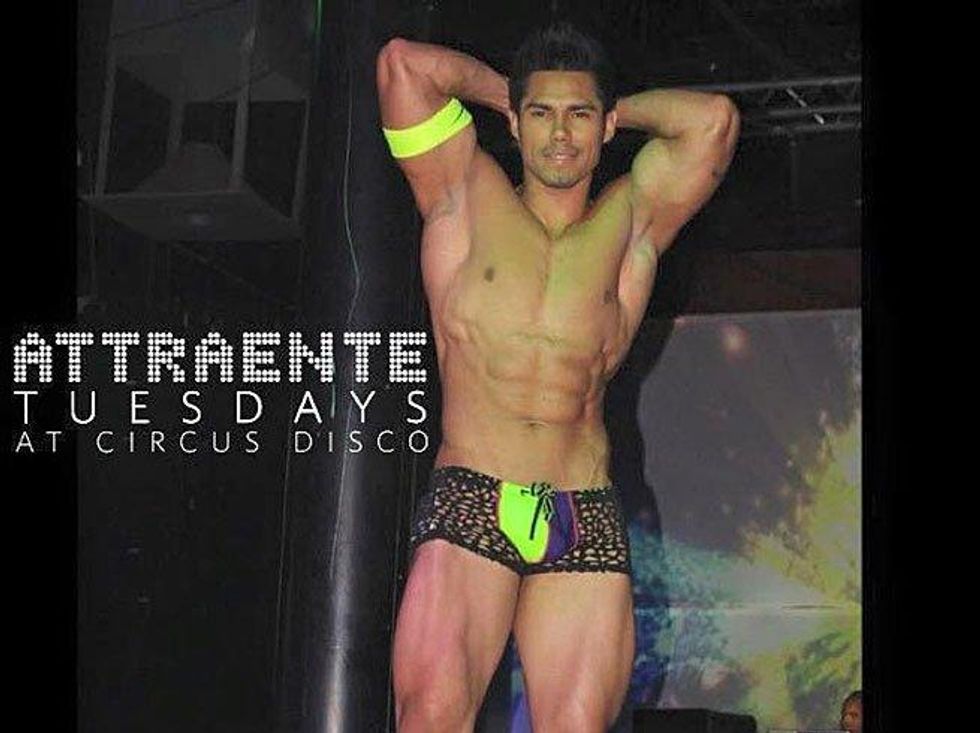
Many continue to lament the recent closing of Circus, the mega-club that's welcomed a diverse clientele since the 1970s. When WeHo was pretty-much white-only, Circus welcomed everyone--well, until 2016, when it shuttered to make way for new apartments.
The Web, New York City
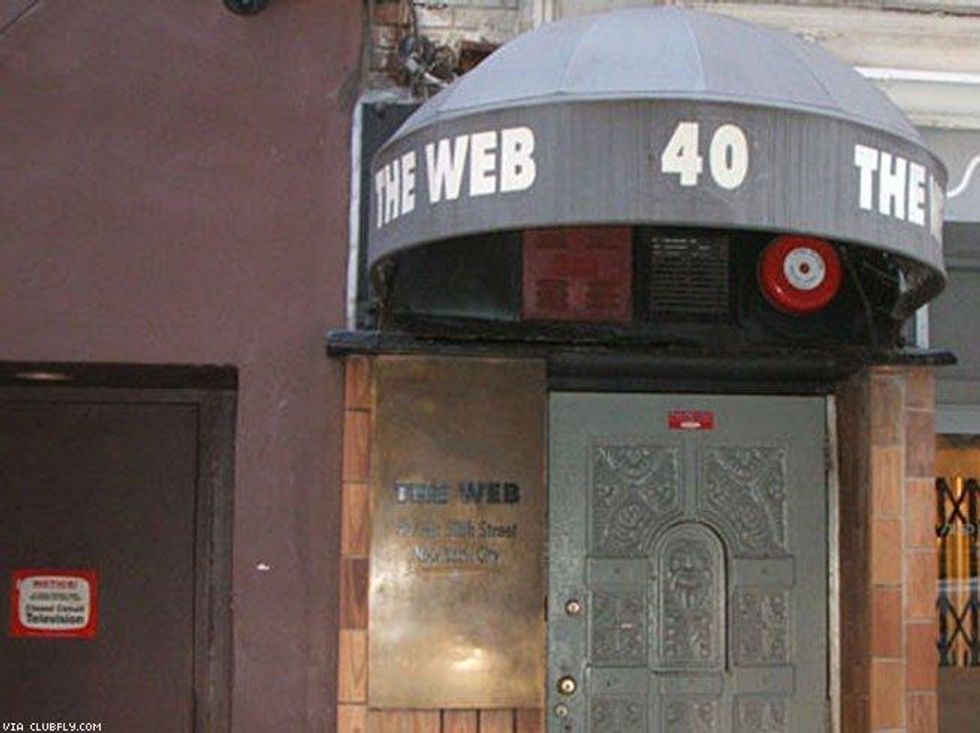
A rare space for Asian gay and bi men, The Web wrapped up about 2013. This Midtown East bar was known for its sexy dancers and late night performances; the bathrooms will be less fondly recalled.
Urge, New York City
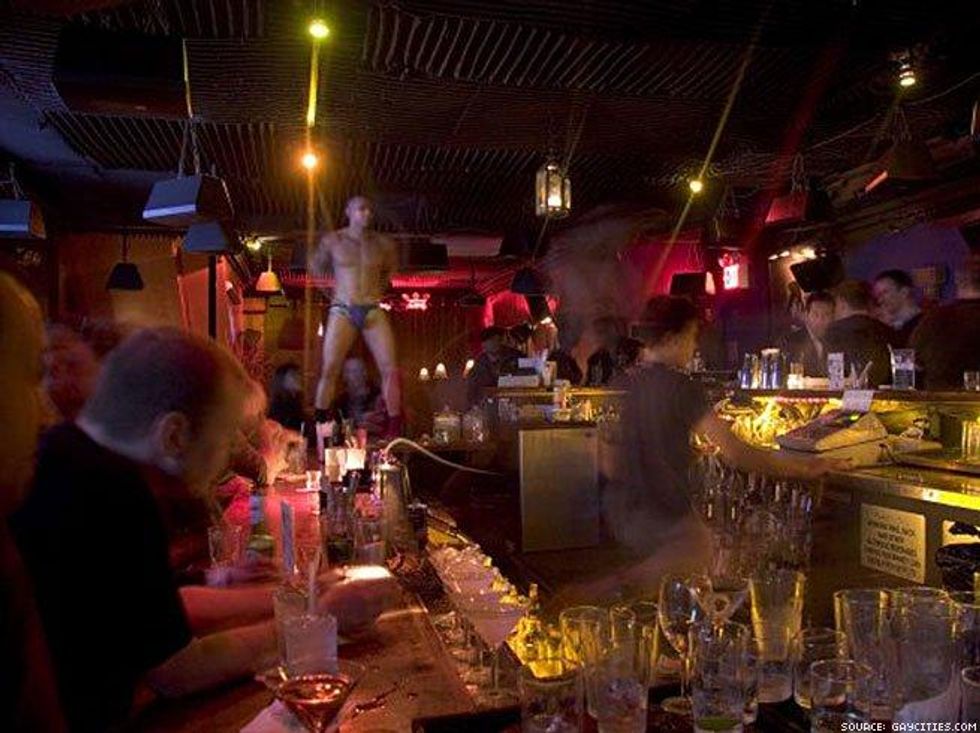
The Urge Lounge on the Lower East Side was a small, dark space that was consistenly packed on weekends; part of the appeal was its sexy go-go boys -- having a lot of dollar bills with you was a good idea. The club closed at the end of 2012.
Apex, Washington, D.C.
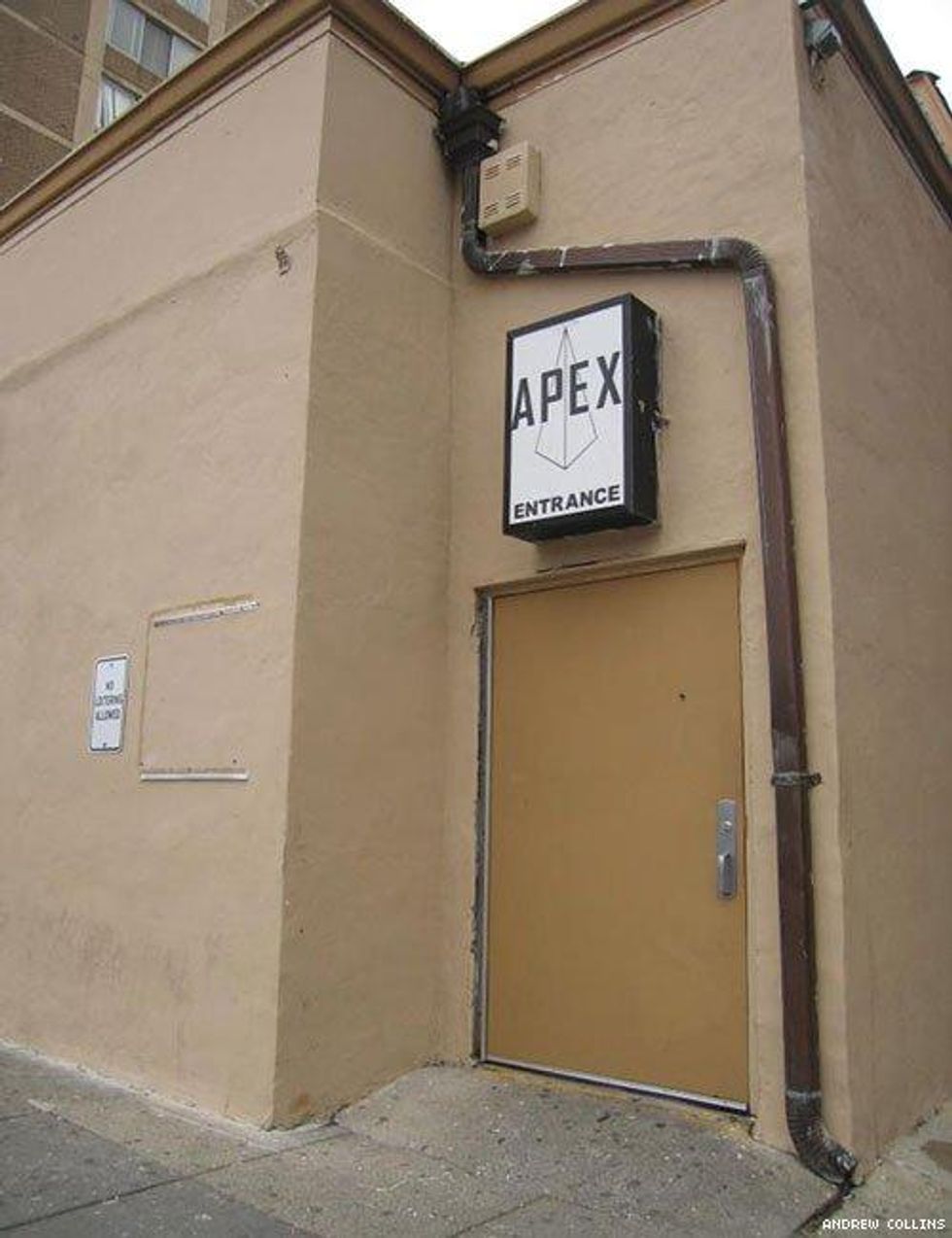
Apex's closing marked the end of an era in the District. Opening under the name Badlands in 1983, this club finally and abruptly folded in 2011, citing economic difficulties, thereby ending the reign of the longest-running gay dance club in D.C. Despite its proximity to Dupont Circle, a ritzy District gayborhood, Apex was a notorious dive; patron Charlie Leveridge writes, "I remember driving past its cinder block, windowless facade in high school and wanting so badly to venture inside. ... The interior was only a little bit more appealing than the exterior." But no matter whether patrons found its concrete ugly or charming, they can all agree that Apex will be sorely missed.
Omega, Washington, D.C.
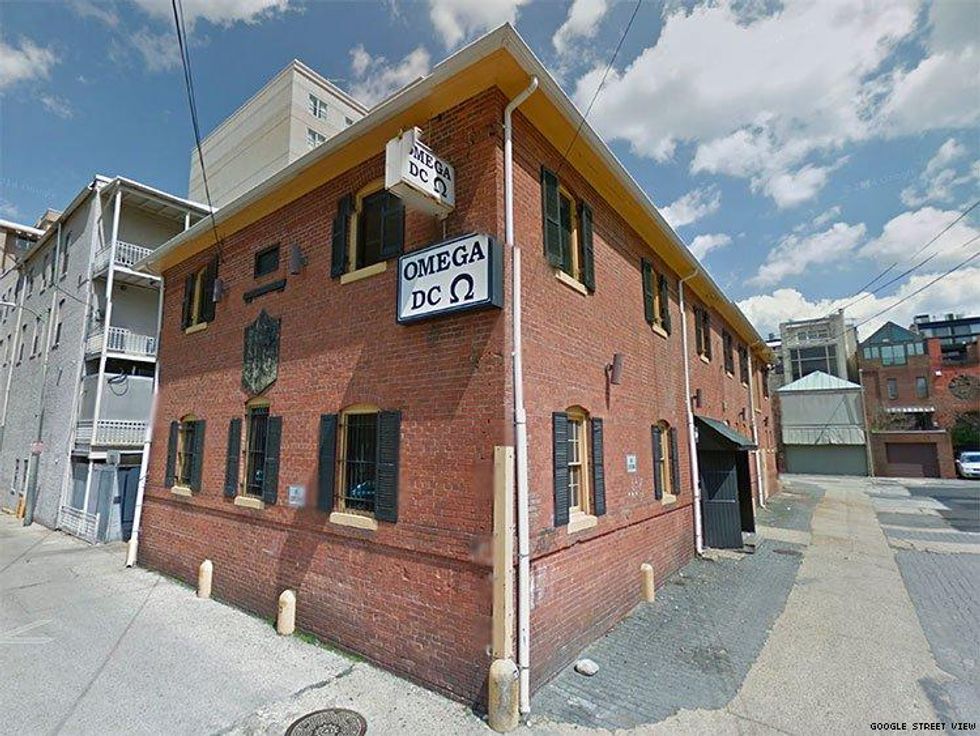
Another long-lived Dupont institution, Omega boasted multiple levels, a video room, and an imposing brick facade. A historic carriage house turned gay bar, this building was sold at for undisclosed sum in 2013 and has since been converted into an Asian restaurant, a bagel store, and a hair salon. Apparently, business had been lagging in recent years, possibly due to the gentrification of Dupont. Perry Morehouse, a longtime bartender at Omega, says the demand for gay bars has diminished as gayness has become more acceptable in straight spaces.
Remington’s, Washington, D.C.
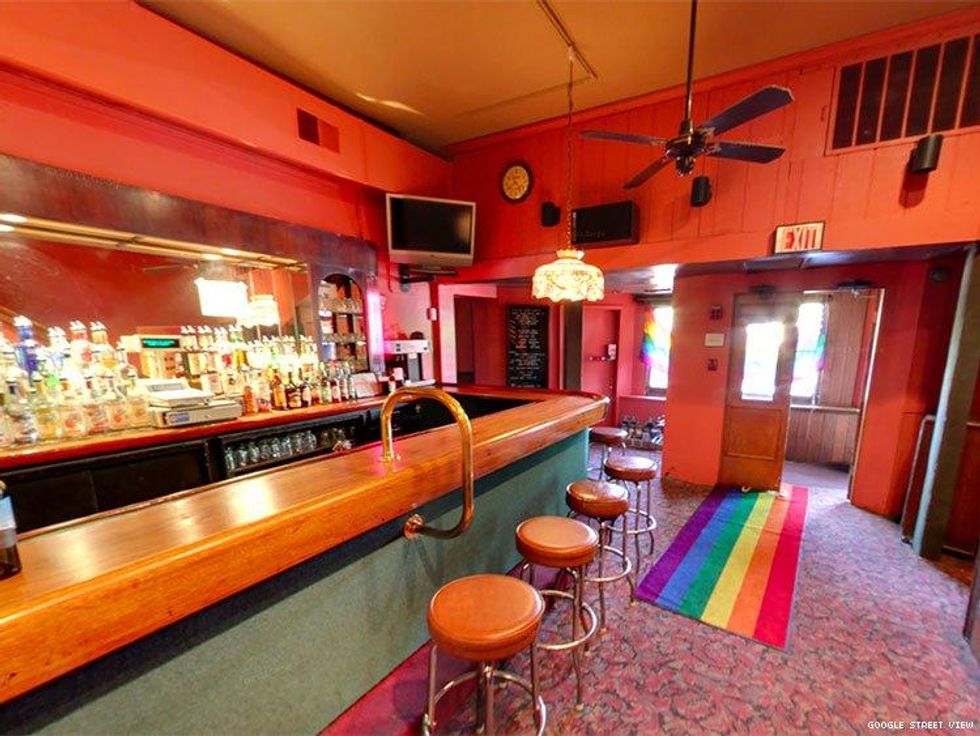
Howdy, boys! For nearly 34 years, Remington's cornered the market on the D.C. country-western crowd. According to the Washington Blade, the bar was the "preeminent" site for country dancing before its closure in 2014. Bartender Mike Swaim told the Blade that Remington's had turned to different forms of entertainment when the country crowd diminished in 2007 -- at the end of its life, the bar hosted drag nights, karaoke, hip-hop DJs, and a weekly Latino night.
Be Bar, Washington, D.C.
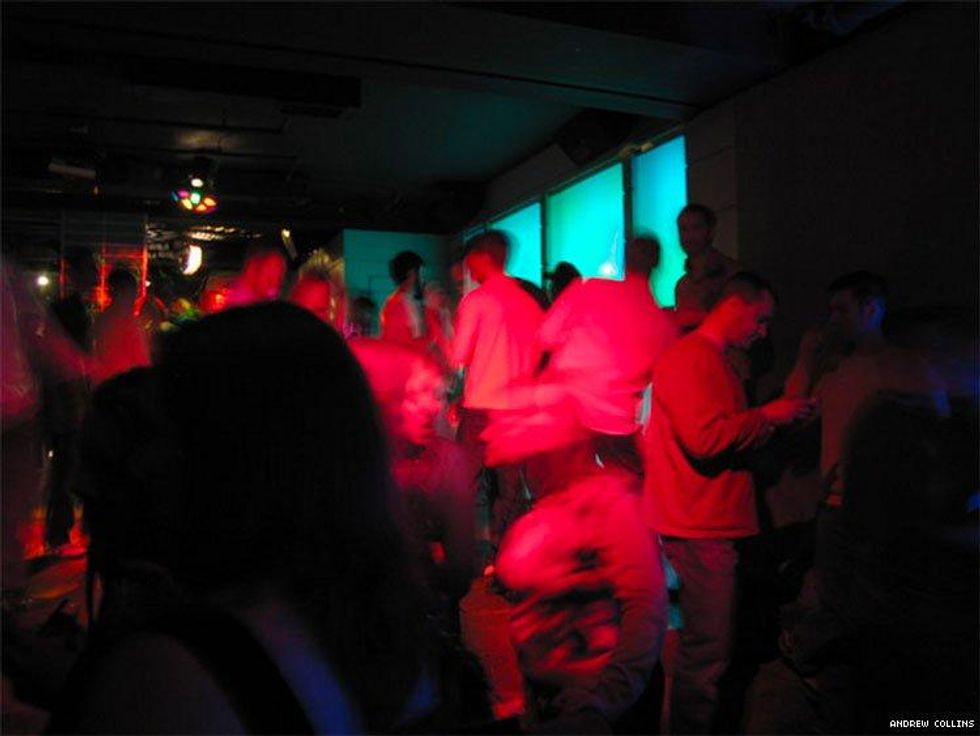
Located off the Green and Yellow lines, Be Bar was one of D.C.'s "swankiest and sexiest gay lounges" before its closure in 2013. It was known as a place where homos and heteros could commingle in a sleek metropolitan environment. After the bar closed, the space was converted first into a straight bar called Mood Lounge, and now it is Vita Lounge, a combo hookah bar and dance club catering to a general clientele.
Hung Jury, Washington, D.C.
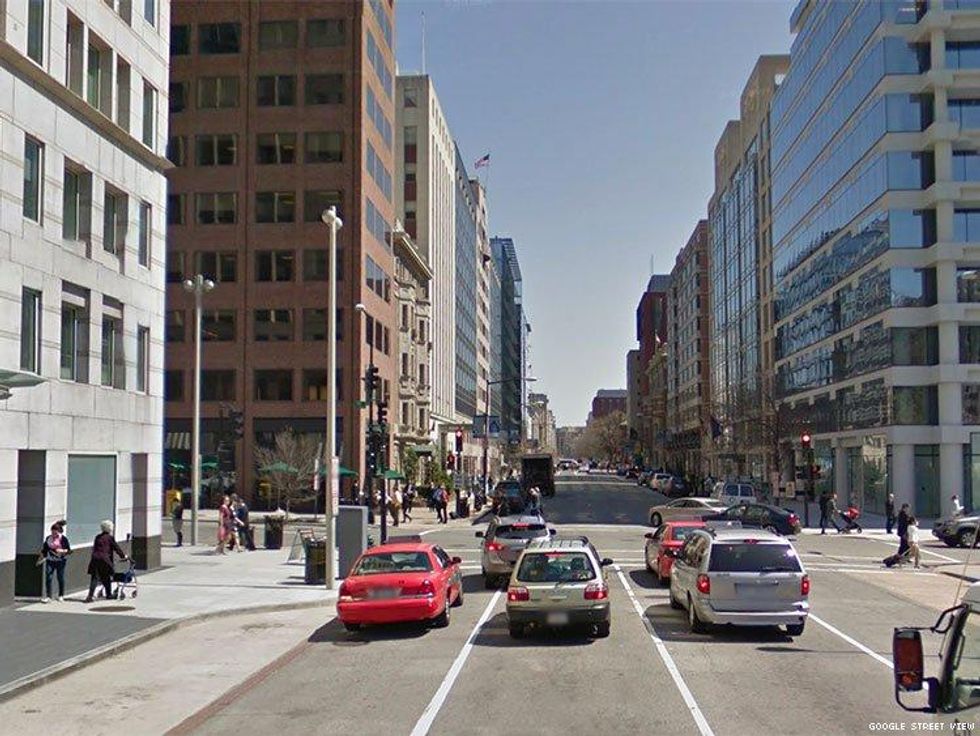
A run-of-the-mill eatery by day, Hung Jury moonlighted as a covert lesbian bar, drawing a diverse crowd to its Capitol Hill location. The only stipulation? Men had to be accompanied by a woman to enter. Hung Jury was proud to be a space for women, often to the exclusion of men; one gay patron remembers feeling unwelcome and spurned by the female clientele. Perhaps because of this fact, Hung Jury remains a spot of pride for lesbians, some of whom feel that such exclusion was just deserts for gay men who regularly exclude women from their nightlife venues. No matter where you stand on this debate, though, we can all mourn this bit of queer history that disappeared in 2011.
Phase 1, Washington, D.C.
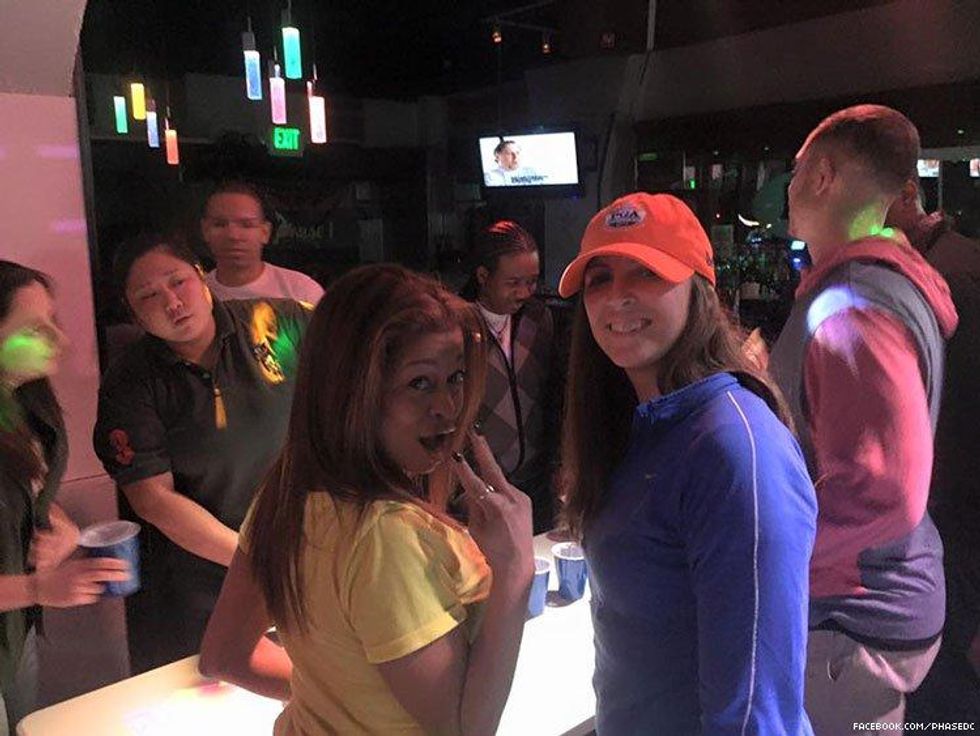
When Phase 1 closed for renovations in January 2016, there were many who suspected there was something more sinister than a simple paint job going on. Now the "oldest lesbian bar in America" has shuttered its doors for good. Opened in 1970 by an ex-military gay couple, Phase 1 had bounced around the District for years before finally settling in Eastern Market. There it earned its stripes as a D.C. institution, a dive bar where lesbians could drink, dance, relax, and even see drag kings onstage.
Lost & Found, Chicago
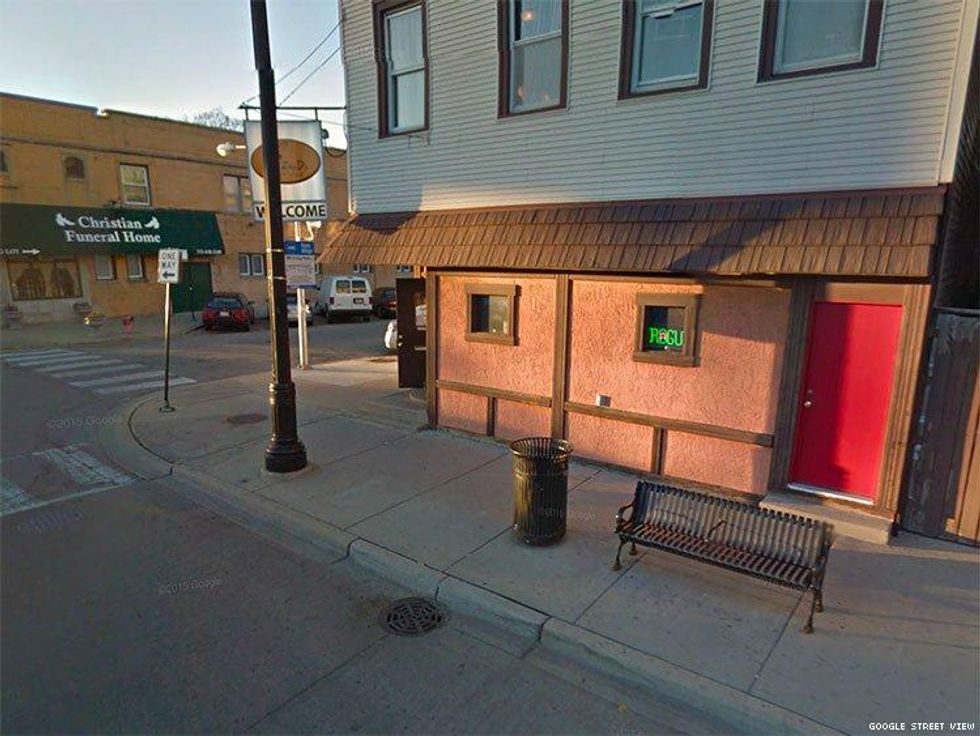
Another contender for the oldest lesbian bar in America, this Horner Park-area destination enjoyed 43 years of operation, from 1965 to 2008, surviving through an incredible stretch of queer history. One historian notes that in the early years, Lost & Found "was required by law to check that the pants of female patrons zippered in the back rather than in the front, the way men's pants did." Despite run-ins with the vice squad, Lost & Found proudly hosted women of diverse gender expressions. A former patron notes the similarity to any given blue-collar bar, including a "clock face featuring a sexy lady" in a wet swimsuit above the bar.
Spin, Chicago
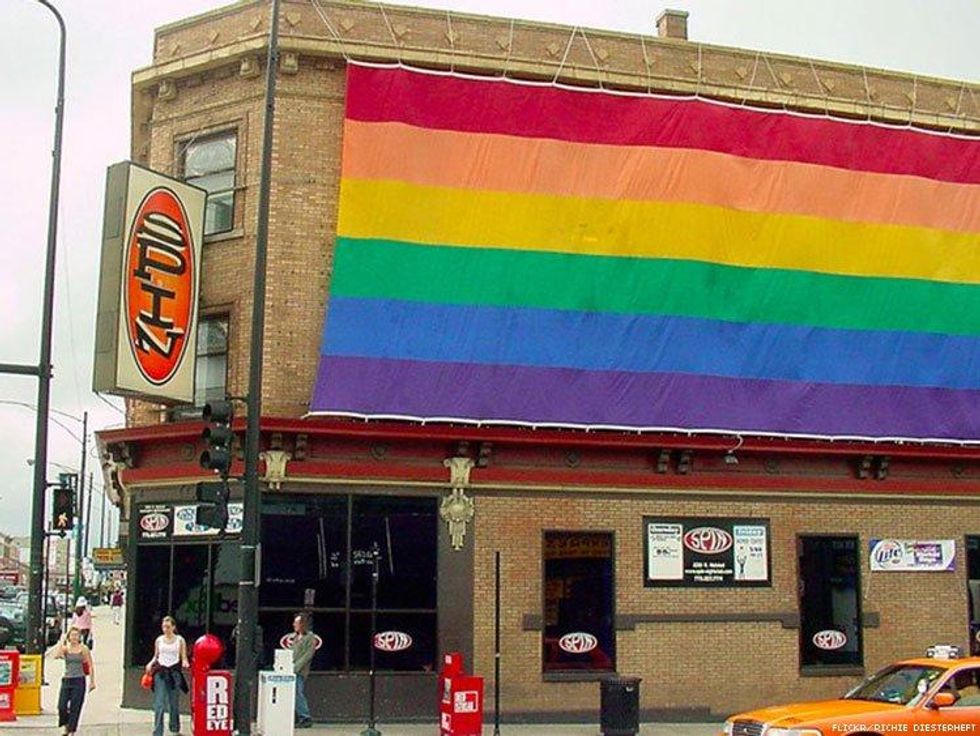
In May 2014, Boystown lost one of its premier gay bars. Spin had been a hub for queer life for over 15 years, offering amateur drag shows, dancing, and "Friday night shower contests." Manhole and two other bars moved into the space, but they closed in 2016.
Star Gaze, Chicago
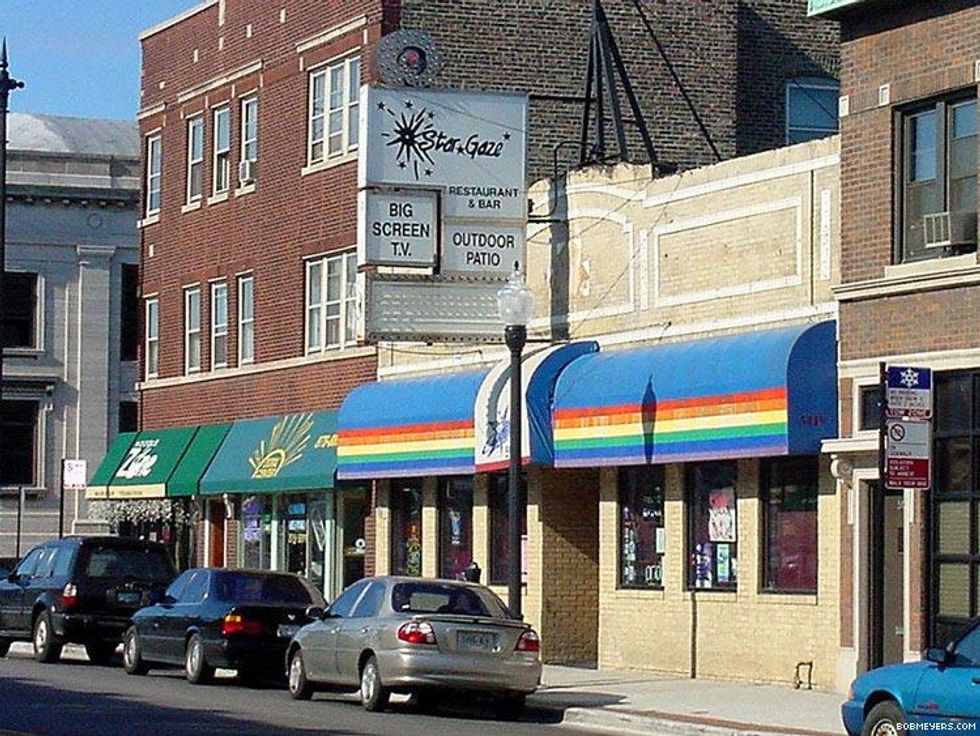
Named Best New Business of 1999 by the Chicago Gay and Lesbian Chamber of Commerce, this Andersonville lesbian watering hole was a community-minded enterprise. The owners, Mamie Lake and Dustin Fermin, were devoted to causes such as the Test Positive Aware Network, the comedy group Hysterical Women, and the Royal Imperial Sovereign Barony of the Windy City. Not to mention the fact that Star Gaze helped sponsor LGBT leagues in softball, basketball, and football. More than any other lesbian bar in the area, Star Gaze will be sorely missed. One patron writes, "Many gay women still can't believe it's gone. It was, by many accounts, the last full-time lesbian bar in Chicago."
Halsted’s Bar and Grill, Chicago
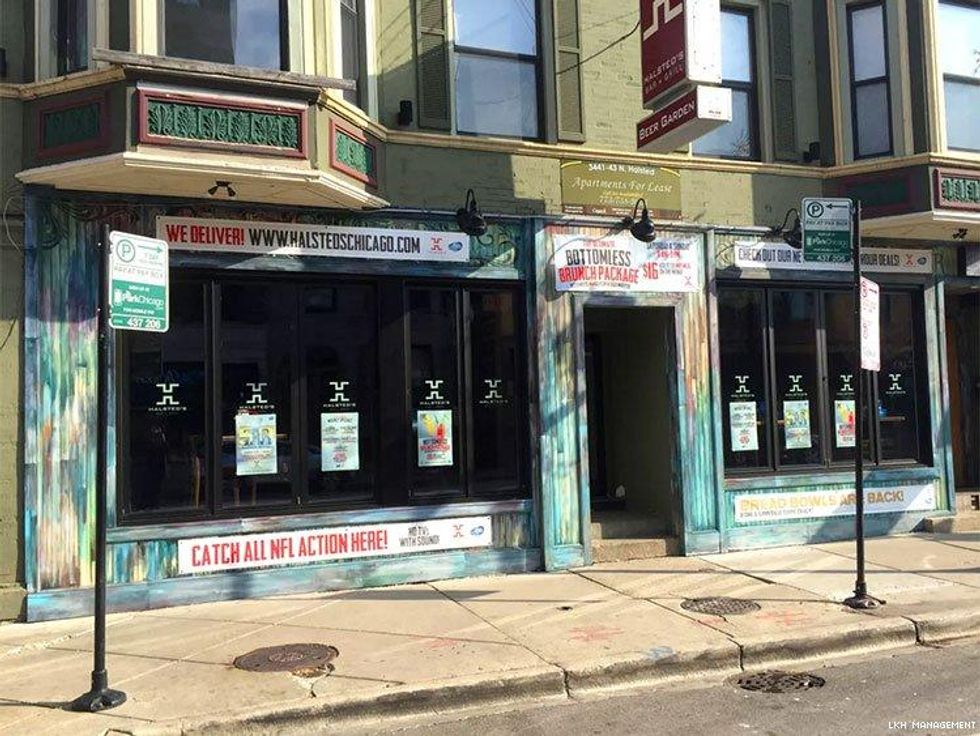
Boystown lost another gay fixture earlier in 2016, as Halsted's, a Lake View establishment for 12 years, closed for good in February. According to a press release, the owners intended to "reconcept" the space in order to better suit the needs of the neighborhood. So what does the Boystown gayborhood need more than a decade-old queer space? A sriracha ribs and pizza restaurant, apparently.
Eagle, Chicago
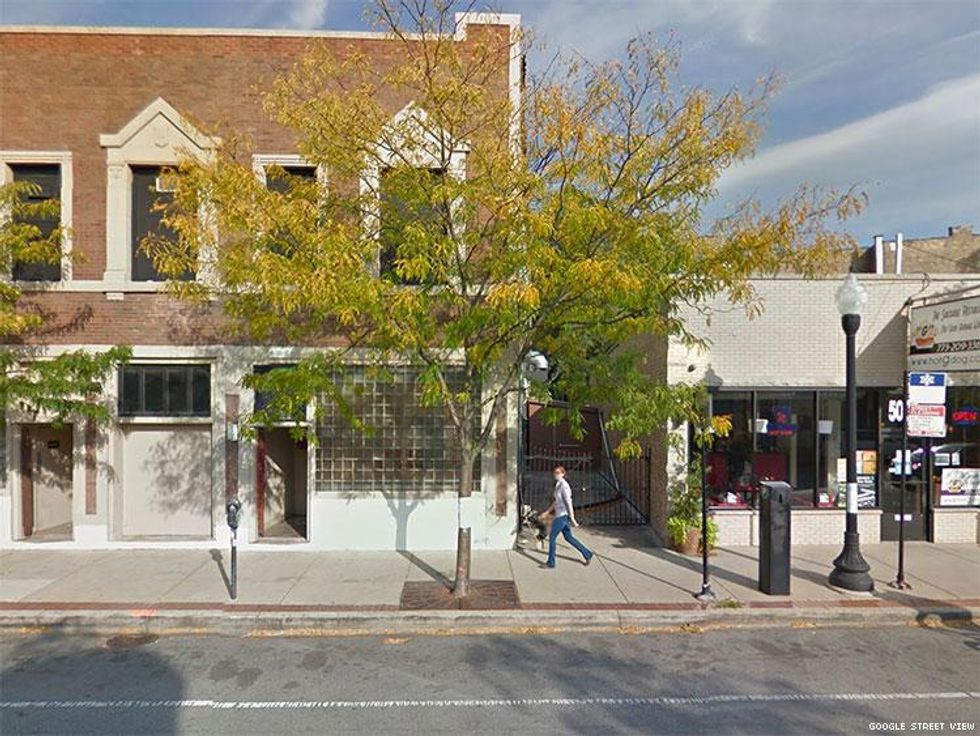
Chicago's Andersonville iteration of the multinational, loosely branded Eagle network closed its doors in 2010. The Eagle served as the center of the Chicago leather scene for years. The bar was open to everyone, but the back room enforced a strict dress code: a "major article of Leather, Rubber or Uniform or Camouflage" was required of anyone seeking to enter. And what's more? "No Gym Shoes or Sandals. No Sweaters or Perfumes." While these restrictions made access difficult for some people, it also made the Eagle a safe space in which like-minded Chicagoans could gather and meet. The good news, however, is that similar Eagle bars thrive across the globe, in over 30 cities in America and Europe, including D.C., L.A., Vienna, London, and Nice.
T’s Bar, Chicago
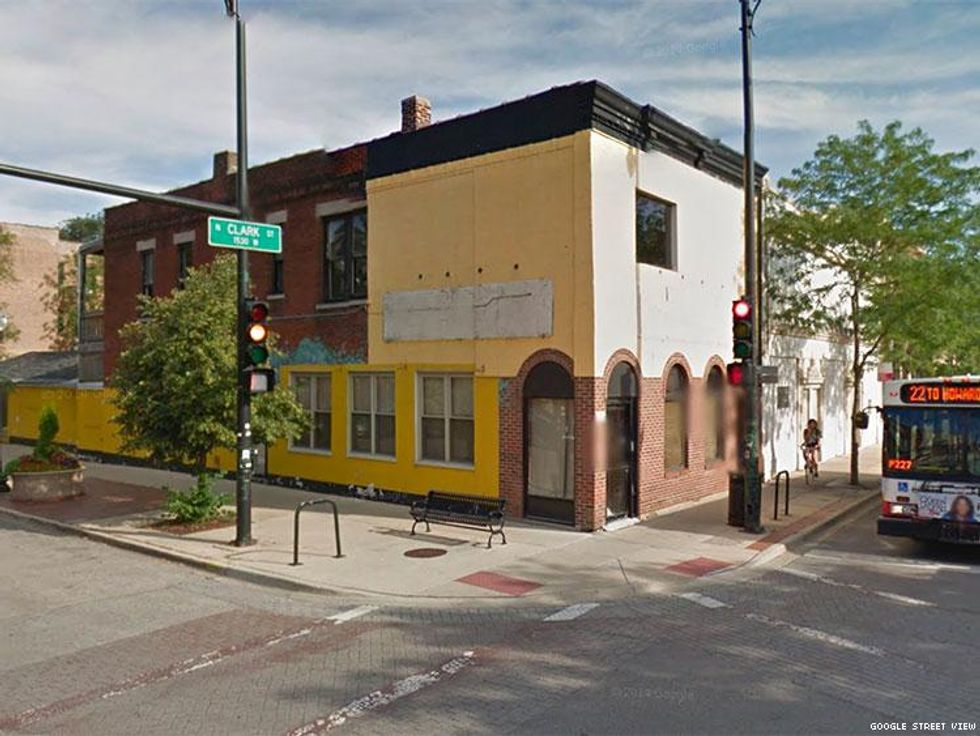
T's Bar, a popular lesbian bar and restaurant serving traditional American fare, was shut down in 2013. Yelp reviews of the defunct Andersonville establishment all agree on a few points: The vibe was friendly, the food was good, and the crowd, as one visitor writes, was "lousy with lesbians." After 12 years running, T's folded in 2013 due to unpaid rent. It was replaced by an upscale Mexican restaurant, though it seems nothing can replace it in the hearts of Chicago lesbians.
Paris Dance, Chicago
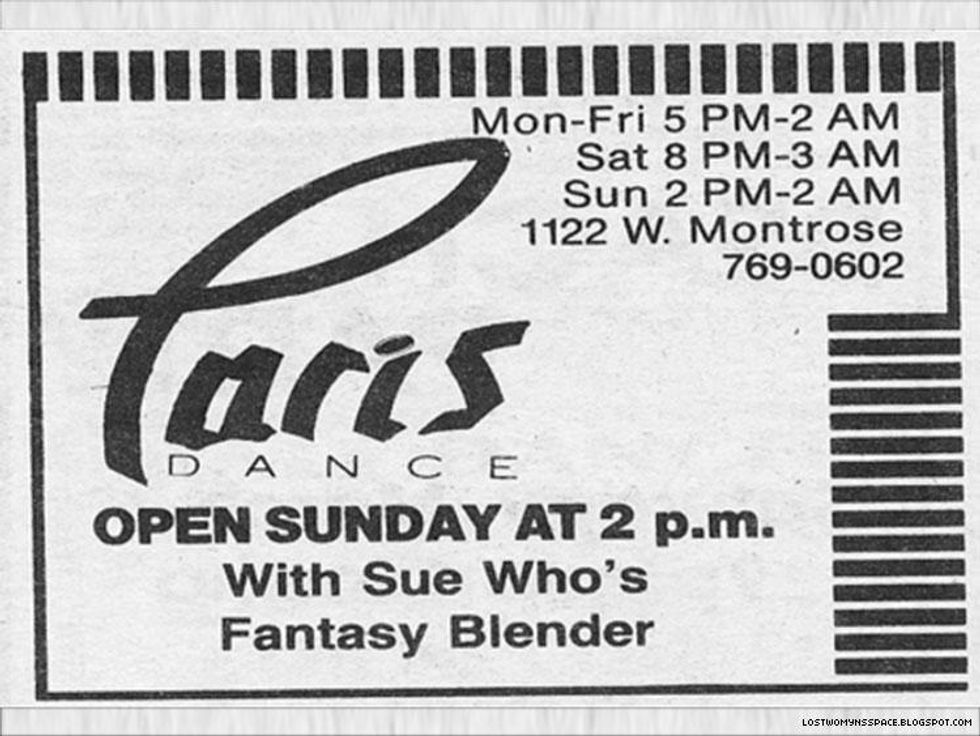
Paris Dance earned its place in the Chicago lesbian pantheon during its 10-year stint from 1987 to 1997. It was a melting pot of a bar and dance club: "racially diverse, culturally fascinating," and representative of myriad ages and professions. At its closing, owner Linda Rodgers, explained why lesbian bars had more trouble staying afloat than their gay counterparts: "Men have more expendable income -- that's a fact." In other words, due to the gendered wage gap, "the dollars [are] on the boy side of the street." The author ends the above article on a positive note, though, reminding her fellow lesbian Chicagoans that two bars, Girlbar and Lost & Found, still catered to their needs. However, since then, both of those bars have closed.
The Cock, Miami
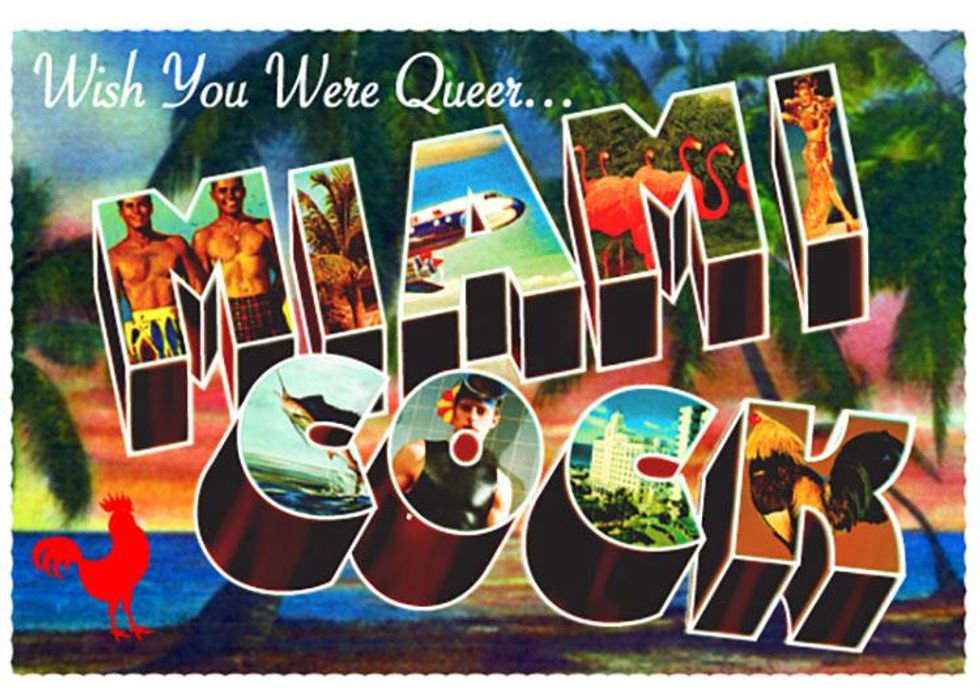
An offshoot of the New York City bar of the same name, the Miami Beach iteration of the Cock opened in February 2014 and closed for good in May of the same year. It seems the NYC establishment wilted in the warmer clime.
Mova Lounge, Miami
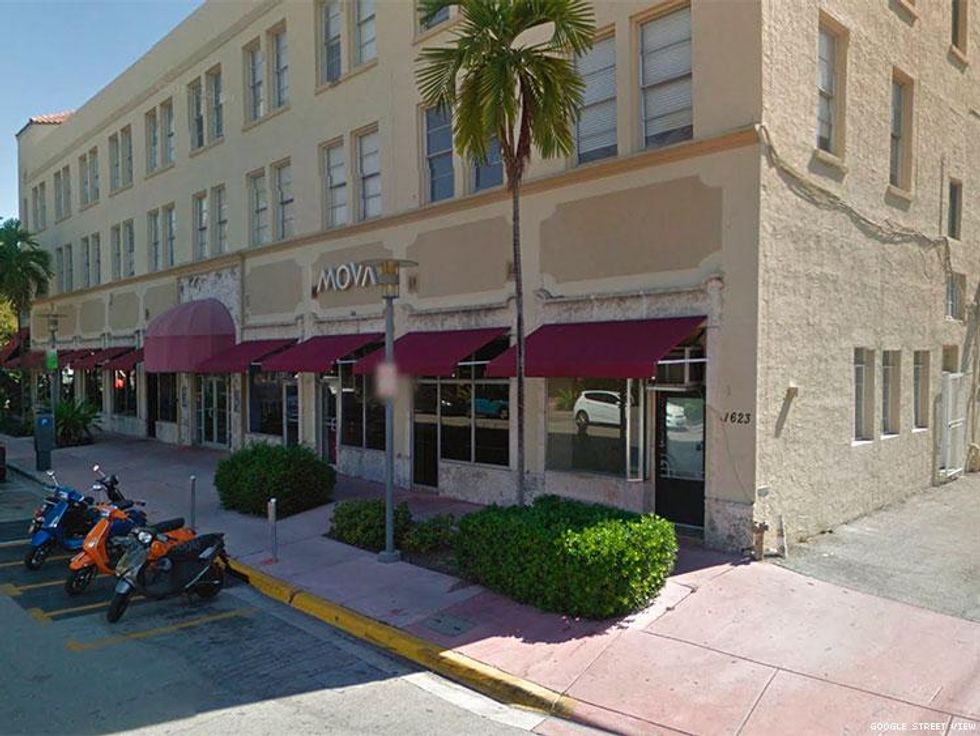
Imagine the chagrin of Miami's gay community when, after seven years of outstanding club culture, Mova Lounge closed both its Brickell and South Beach locations in 2014. As it had been cited as one of the best gay bars in Miami, Mova's closure came as a surprise -- in fact, the Brickell property was bought out from under the owner, Babak Movahedi, who then decided to sell the other location and start fresh somewhere else.
Magnum Lounge, Miami
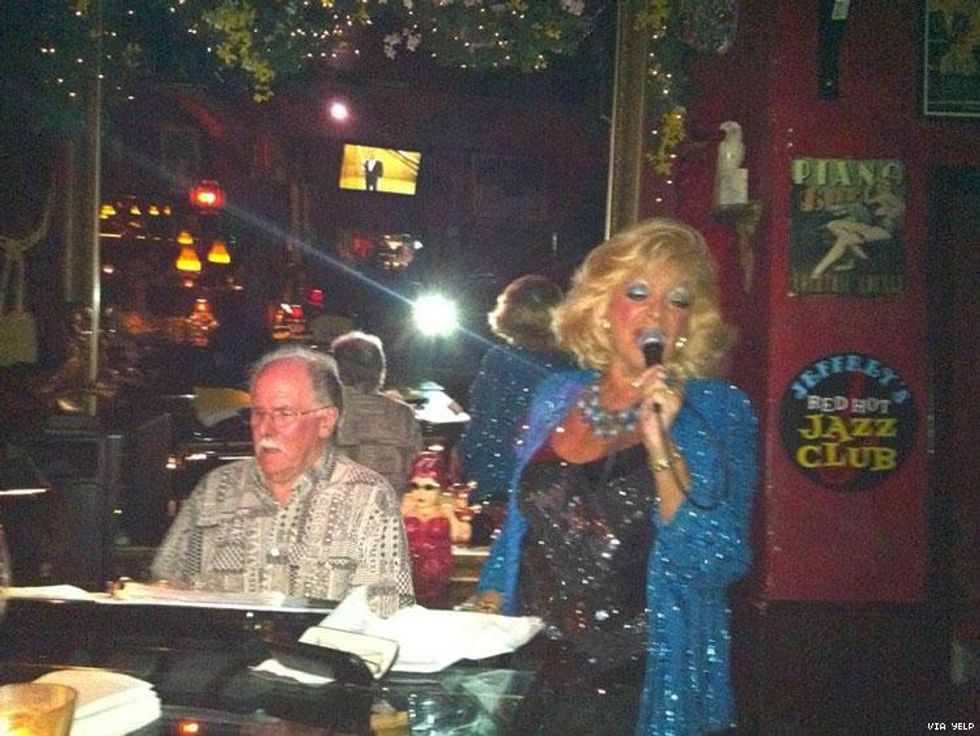
As it had also been voted one of the best gay bars in Miami, the closure of Magnum Lounge in 2015 meant the end of a chapter of Miami history. As the Miami New Times says, "Nowhere else [said] old-time Miami" quite like it. And it's not hard to see why: good food, $4 Bloody Marys, and live piano music to lend a sophisticated vibe. While this bar catered mainly to older gay men, that didn't dissuade millennials from enjoying the classic charm of this Upper Eastside establishment.
Solare Coliseum, Miami
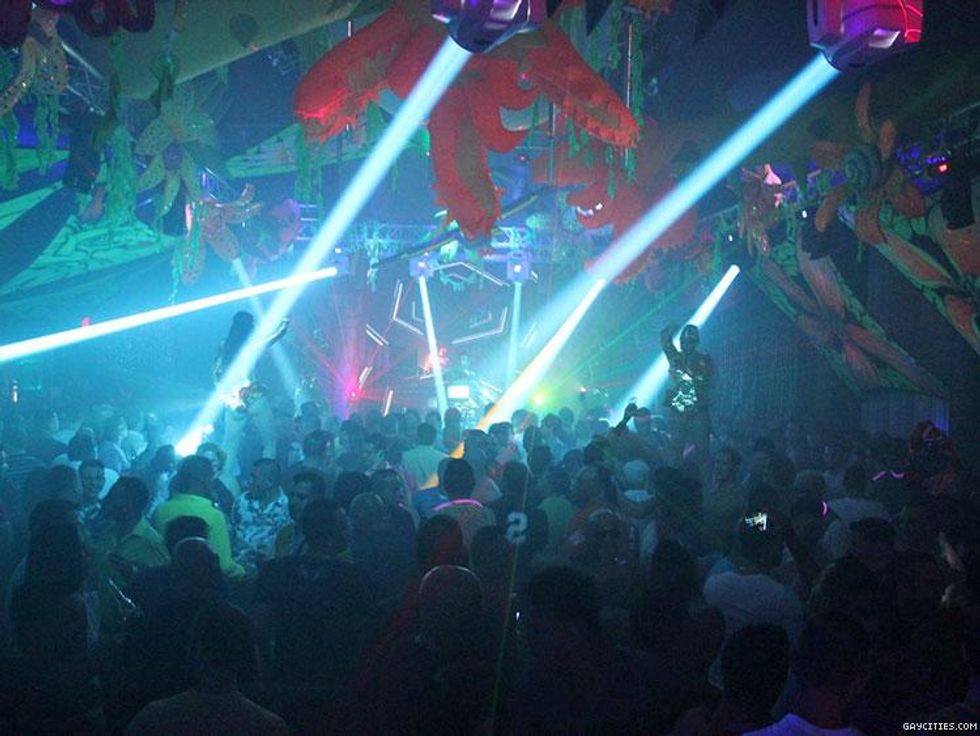
Located in Doral, just outside Miami, this Latino dance club boasted four rooms, a mammoth patio, and some of the best DJs south of the Mason-Dixon line. Solare injected the Miami gay scene with fierce drag and hot dancing, not to mention "one of the best queen-strutting stage shows" around -- that is, until 2008, when it closed its doors for good.
Club Ripples, Long Beach, Calif.
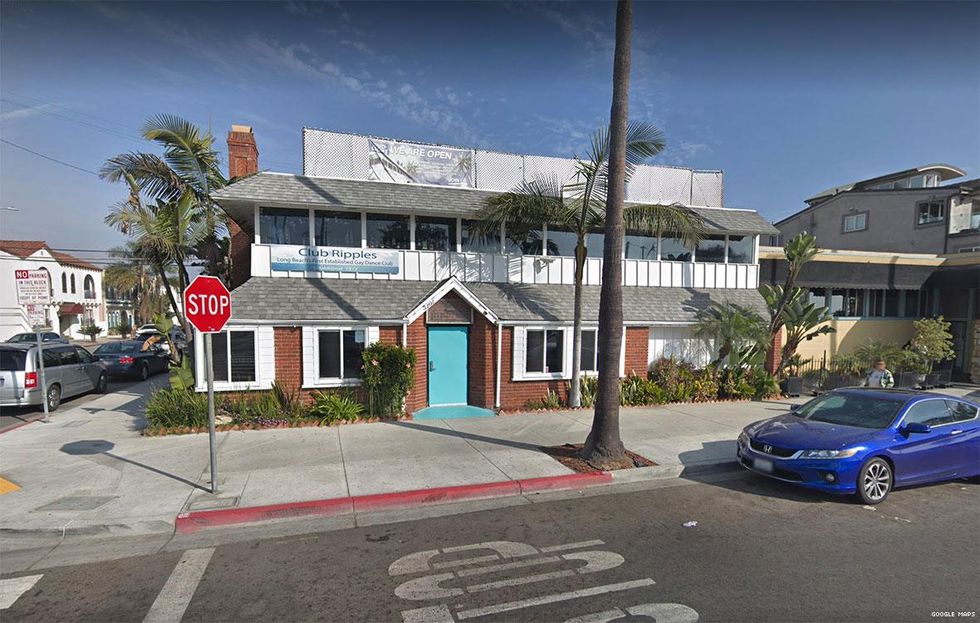
This longest-operating gay dance club in Long Beach, a queer mecca south of Los Angeles, announced it would be shutting down in the summer of 2019. Club Ripples opened in 1972 and, according to co-owner Larry Hebert, endured threats and attacks from the Aryan Nation. The club may be familiar to many outside California -- it was featured on an episode of Tabatha Takes Over in 2012.
